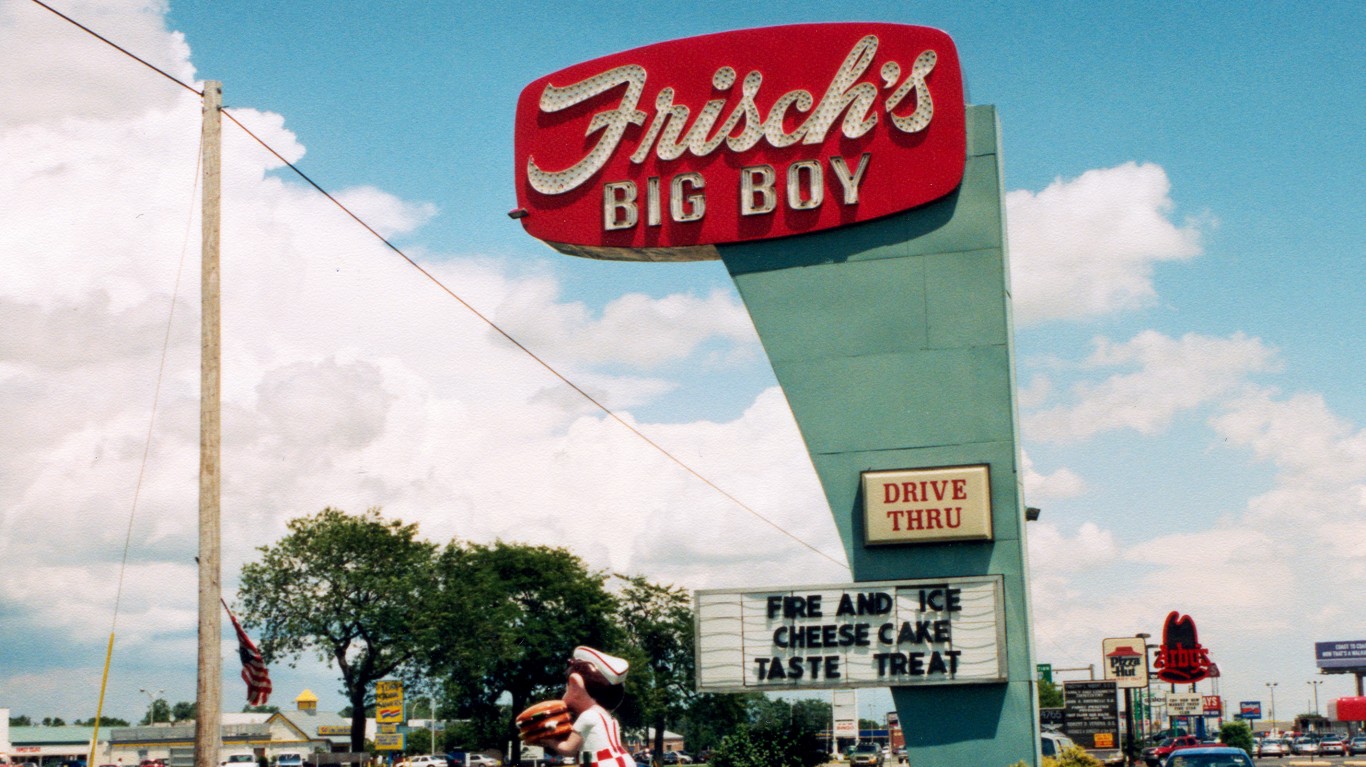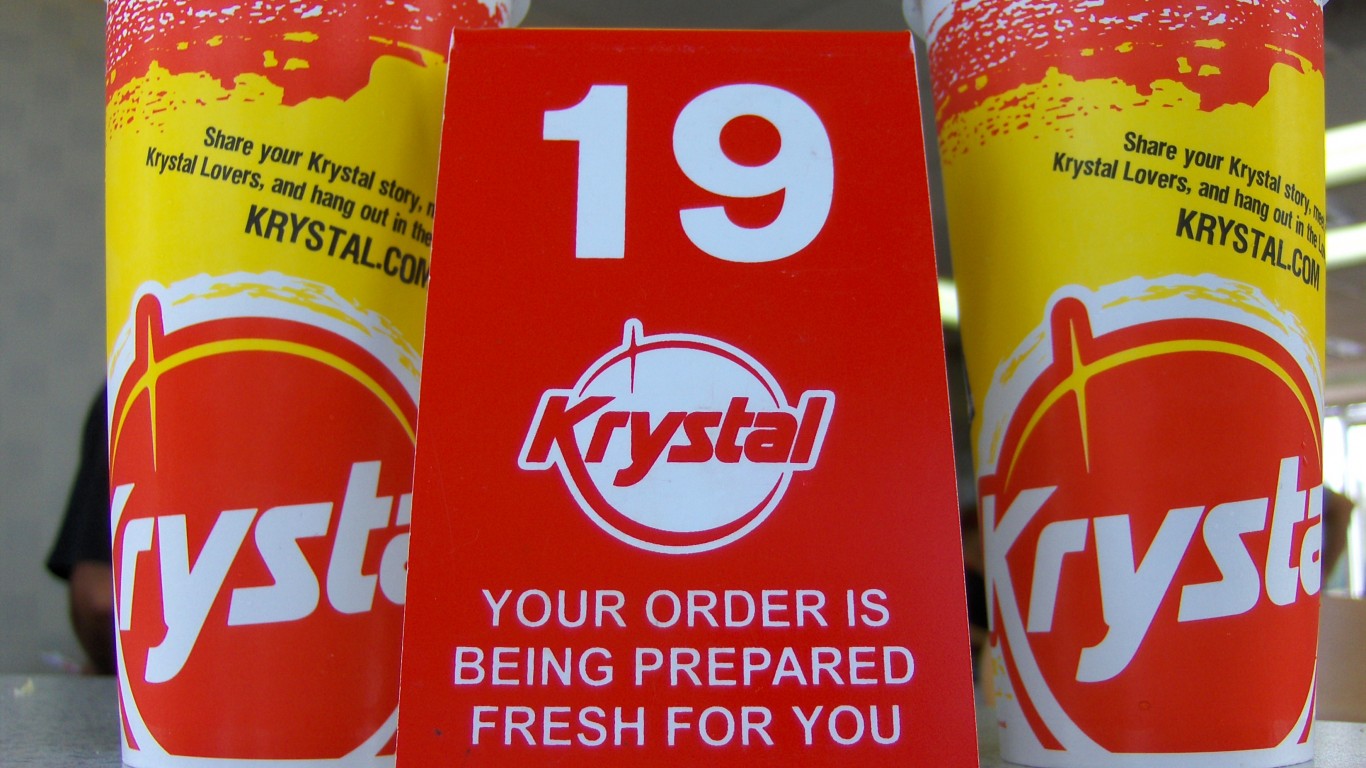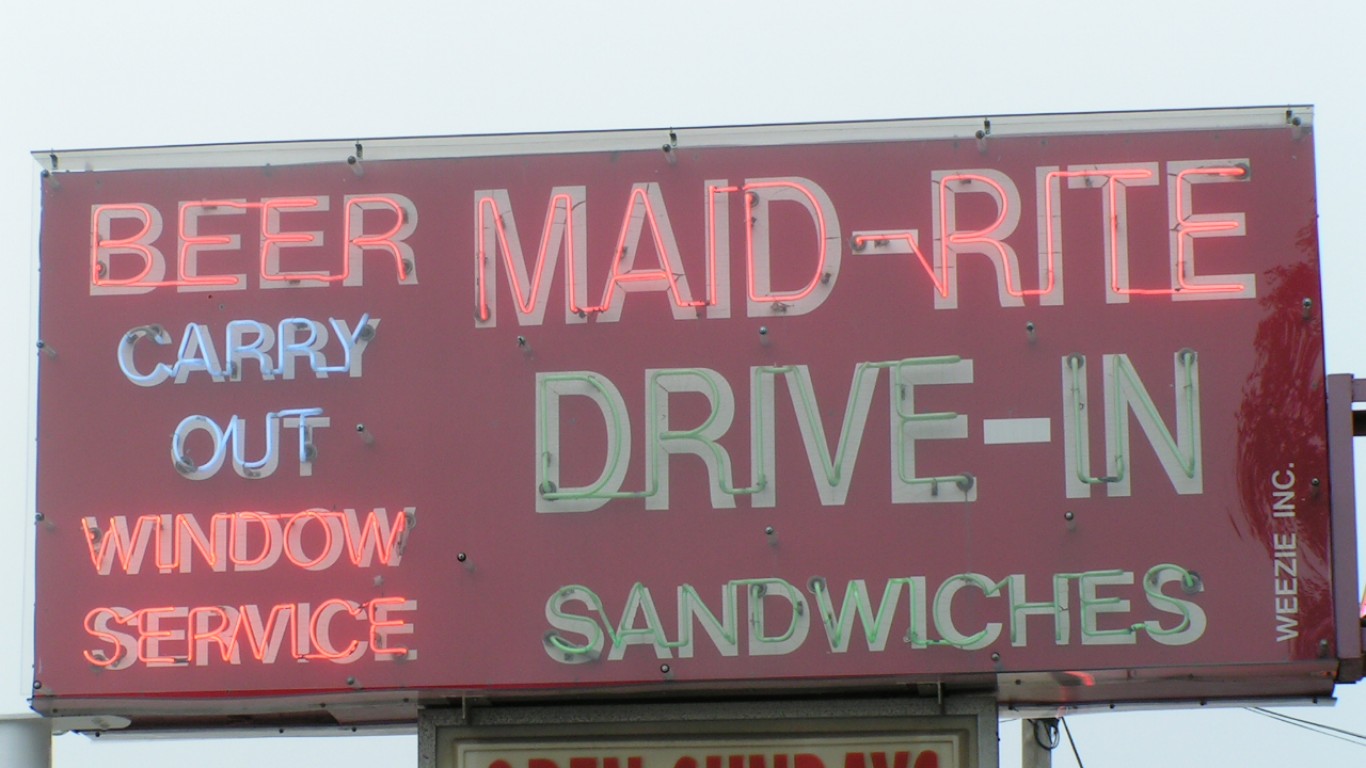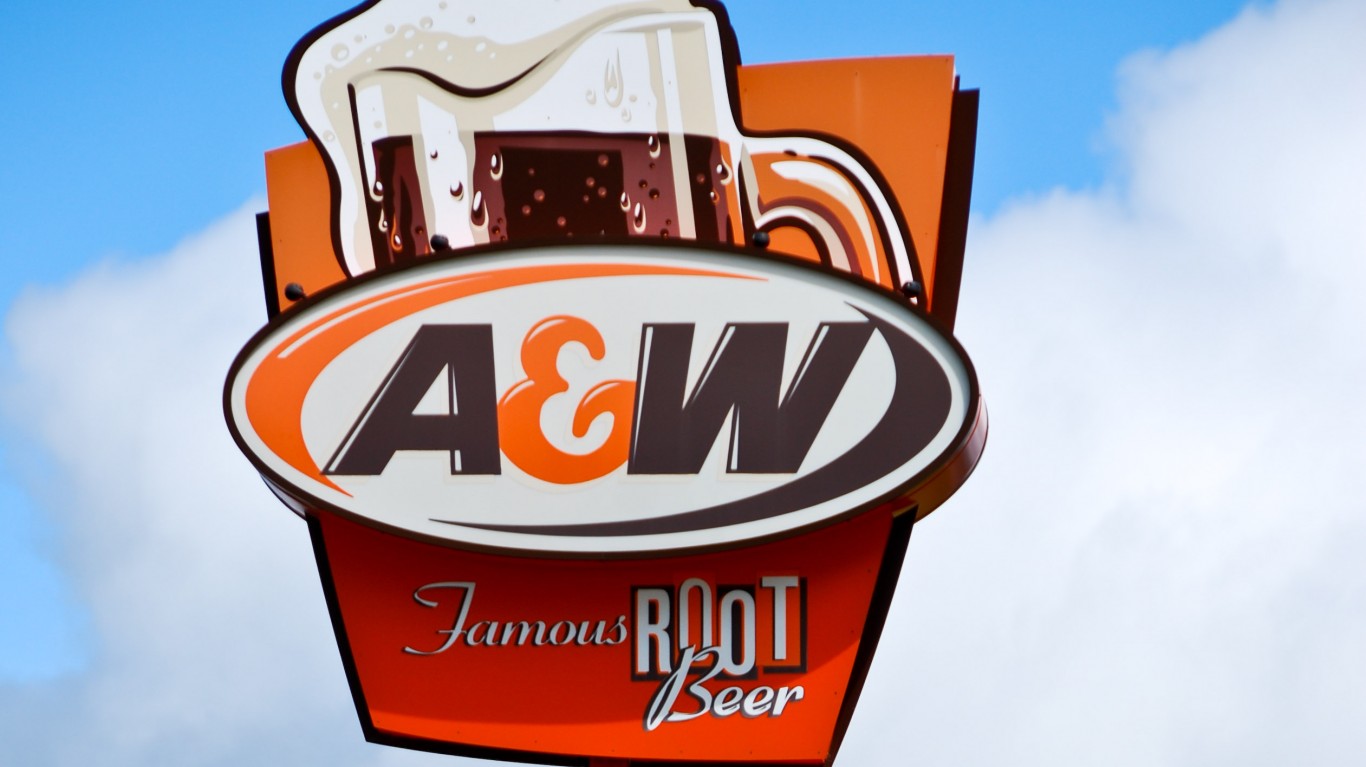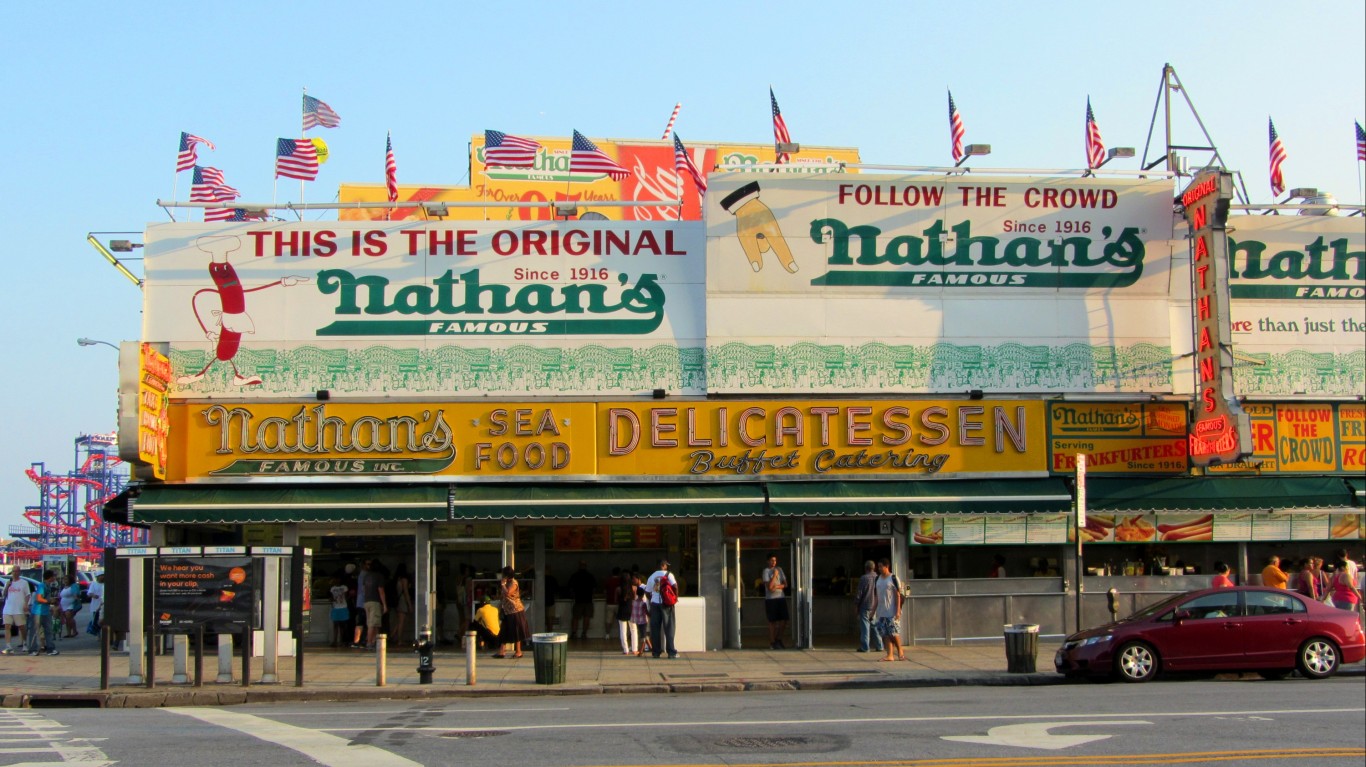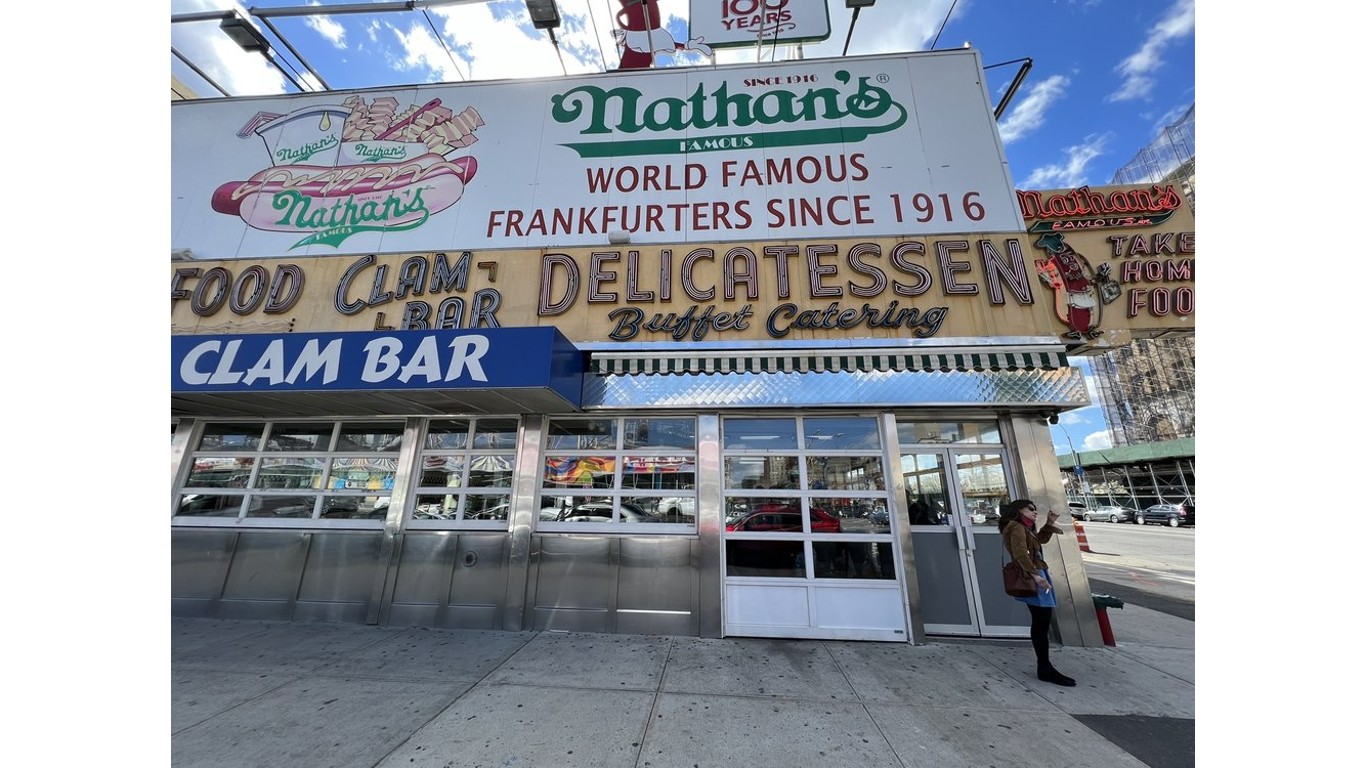
It’s easy to assume major restaurant chains like Burger King and Applebee’s have existed forever. But every chain started small before growing into the brands we know today. In recent years, fast-casual chains like Chipotle have rapidly expanded by offering high-quality food quickly and conveniently.
However, some true veterans blazed trails long before fast food became mainstream.
Many early chains were founded in California when new highways brought droves of hungry travelers looking for inexpensive bites. Over time, some went national, forever changing how Americans eat. Others remained regional favorites. (These iconic food and drink brands were born in California.)
Over the years, some of the earliest chain restaurants expanded nationwide, spawning countless imitators and forever changing the way Americans eat (we’re looking at you, White Castle). But some were content to remain smaller regional chains for a variety of reasons, falling into the camp of regional restaurant chains we wish were nationwide.
To compile a list of America’s 30 oldest restaurant chains, 24/7 Tempo examined lists of the country’s top nationwide and regional food service operations from sites including Nation’s Restaurant News, Restaurant Business, and QSR Magazine. We then filtered out those known to be relative newcomers, determining the founding dates, original locations, and number of U.S. locations for the remaining chains from their own websites whenever possible. In cases where that information was not available from the chains directly, we drew data from Statista and Scrapehero. (Note that some of these chains trace their founding date to earlier efforts under different names.)
Click here to read about America’s 30 oldest restaurant chains
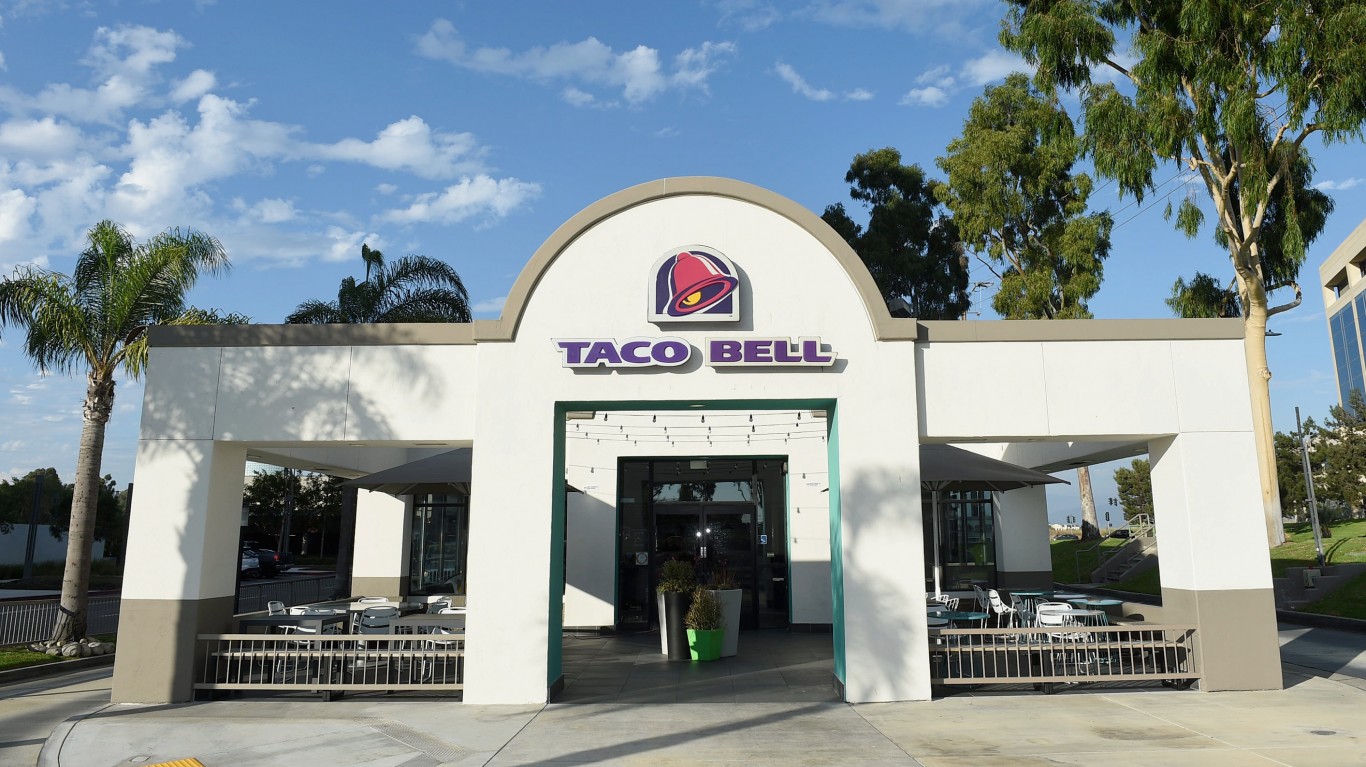
Taco Bell
> Year founded: 1962
> Original location: Downey, CA
> Approximate number of units (US only): 7,427
Taco Bell was founded back in 1962 by an entrepreneur named Glen Bell (yes, the chain is named after its founder, not an actual bell). After opening a hot dog stand in San Bernardino, California, he noticed that a restaurant across the street named Mitla Café was doing extraordinary business selling hard-shelled tacos. Bell eventually convinced the owners to let him see how they made their specialty, and in 1951 he opened a taco stand of his own. He spent years perfecting the formula and settling on a name, and in 1962 Taco Bell was born, with a menu of tacos, burritos, tostadas, frijoles, and chiliburgers. The original building currently lives in the parking lot of the chain’s corporate headquarters in Irvine.
[in-text-ad]
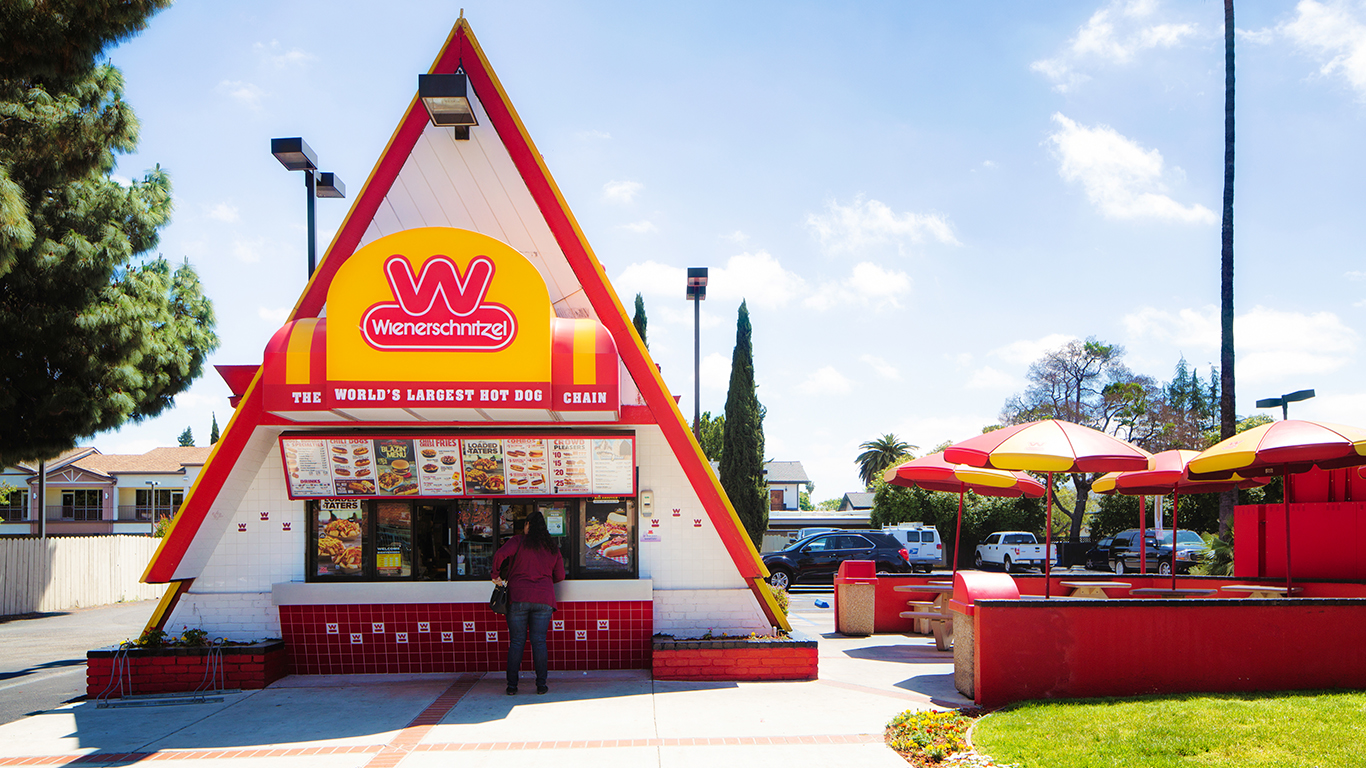
Wienerschnitzel
> Year founded: 1961
> Original location: Wilmington, CA
> Approximate number of units (US only): 358
Contrary to what its name might imply, Wienerschnitzel isn’t German, nor does it have anything to do with the Viennese fried veal cutlet it’s named after. It’s actually a chain of hot dog stands founded in 1961 by a former Taco Bell employee named John Galardi, who opened the first location in the Los Angeles community of Wilmington after being encouraged to do so by Glen Bell himself. Galardi’s wife, Cynthia, reportedly came up with the name while leafing through a cookbook. The majority of Wienerschnitzel’s locations are still in California and Texas, and it’s still closely associated with its A-frame roof, even though newer locations forgo it.
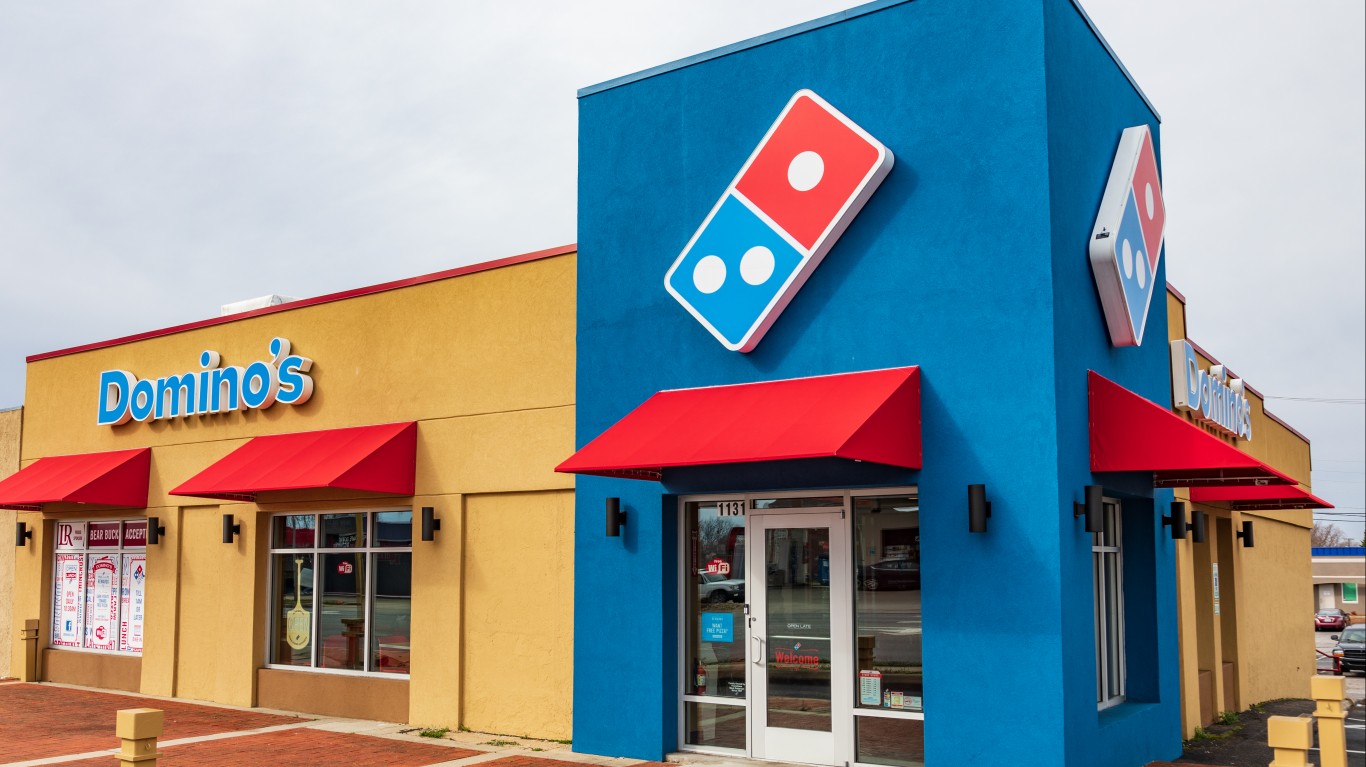
Domino’s
> Year founded: 1960
> Original location: Ypsilanti, MI
> Approximate number of units (US only): 6,572
In 1960, brothers Tom and James Monaghan scratched together $1,400 to purchase a small pizza chain named DomiNick’s in Ypsilanti, Michigan. After eight months, James decided that he didn’t want to quit his job as a postman, so he exchanged his shares in the company for Tom’s Volkswagen Beetle (one of the absolute all-time worst business decisions). Tom expanded out to three locations within five years and changed the name from DomiNick’s to Domino’s – the three dots on the logo are symbolic of these first three locations. Tom ran the company until 1998.
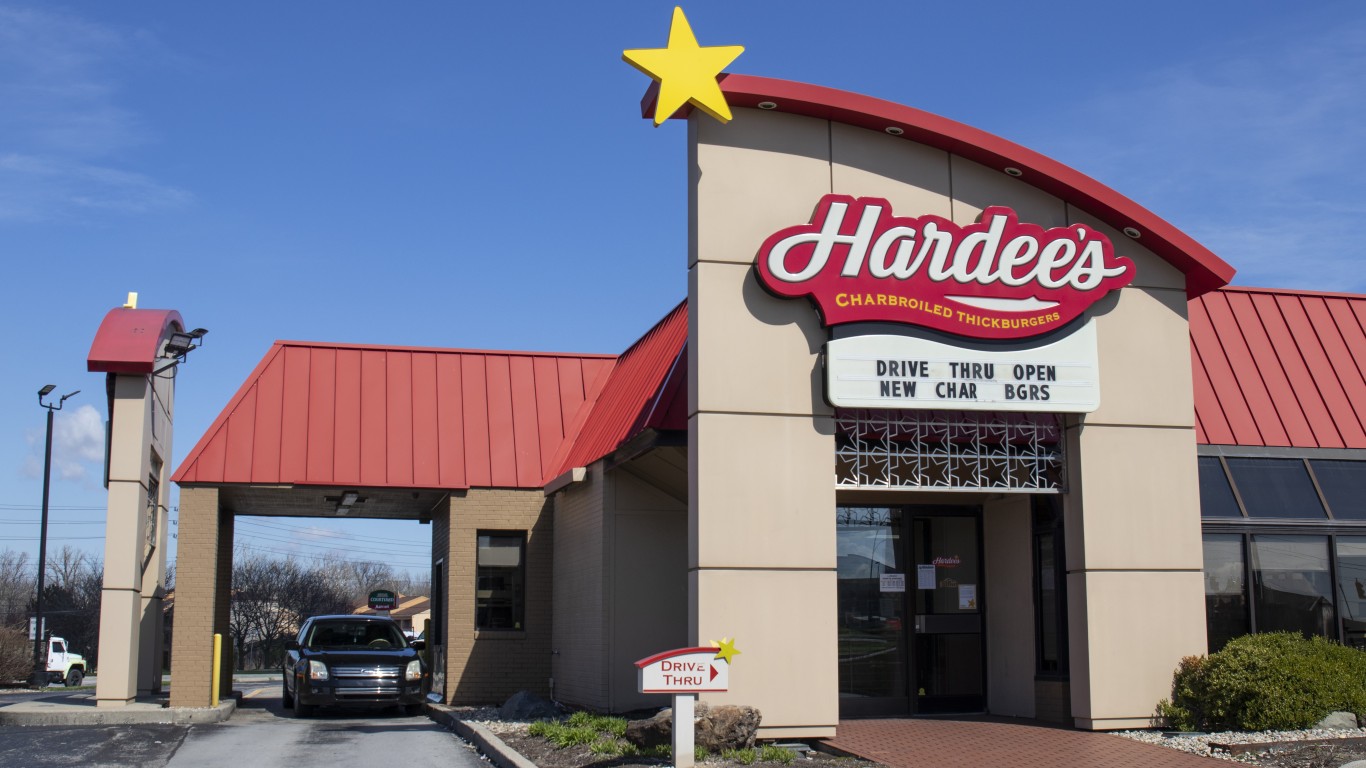
Hardee’s
> Year founded: 1960
> Original location: Greenville, NC
> Approximate number of units (US only): 1,519
Wilbur Hardee opened a restaurant in Greenville, North Carolina, in 1960, and it was so successful that a year later he opened a second location in nearby Rocky Mount with new partners James Gardner and Leonard Rawls. Gardner and Rawls took over the company from Hardee later that year (Hardee claimed that he lost it in a poker game) and began establishing franchises shortly thereafter. Its simple menu of burgers, fries, shakes, and apple turnovers proved to be a hit, and nearly 200 locations had opened by the end of the decade. In 1997, the parent company of the California-base Carl’s Jr. chain bought Hardee’s. Today, the merged operations have more than 3,800 franchised or company-owned locations in 44 states and 43 foreign countries and US territories.
[in-text-ad-2]
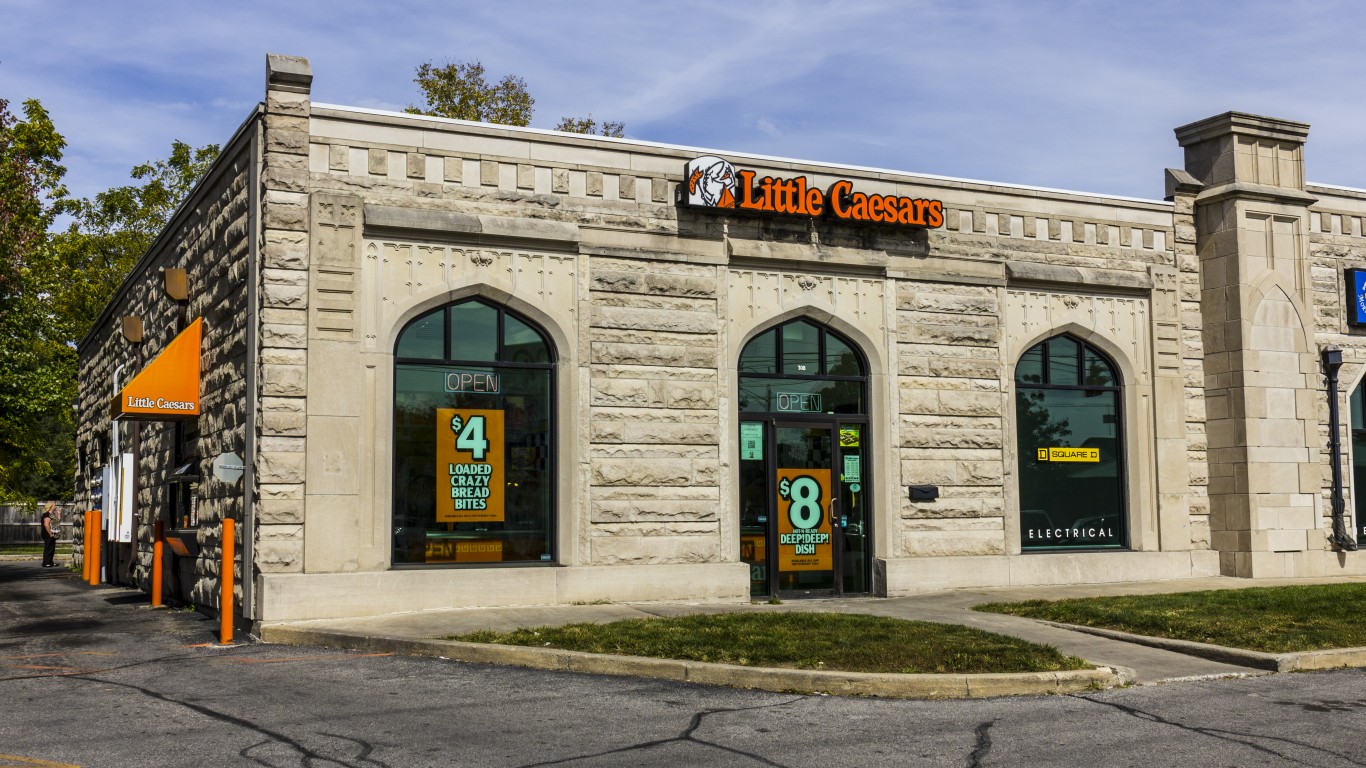
Little Caesars
> Year founded: 1959
> Original location: Garden City, MI
> Approximate number of units (US only): 4,171
Pizza! Pizza! Founded by husband and wife Mike and Marian Ilitch as Little Caesar’s Pizza Treat in a strip mall just outside Detroit in 1959, Little Caesars sold its first franchise three years later and introduced its signature catchphrase in 1979 to advertise a deal offering two pizzas for the usual price of one. Even though it today has more than 5,000 locations worldwide, Little Caesars and the Ilitch family are still closely associated with Detroit. Ilitch Holdings also owns the Detroit Red Wings, Detroit Tigers, and the city’s historic Fox Theatre, home to its headquarters.
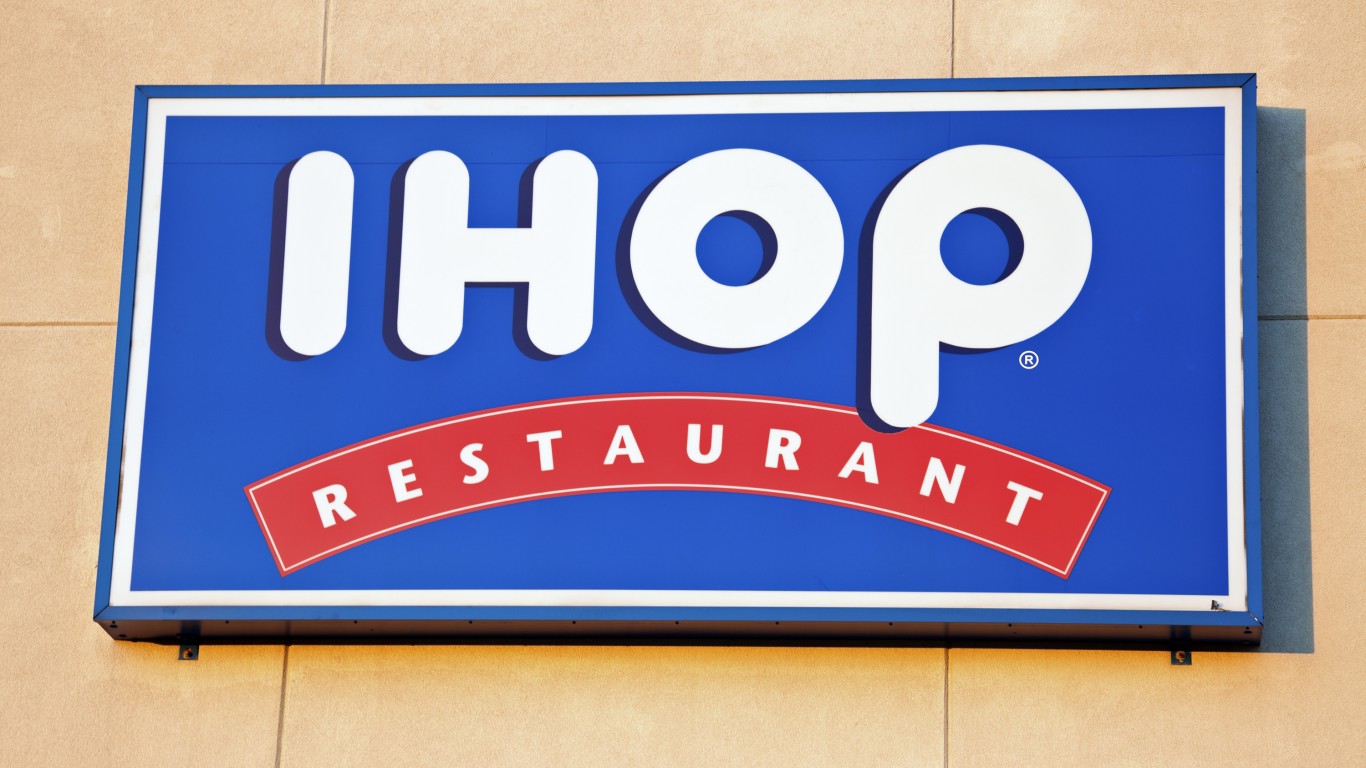
IHOP
> Year founded: 1958
> Original location: Toluca Lake, CA
> Approximate number of units (US only): 1,666
Founded in Los Angeles in 1958 by brothers Al and Jerry Lapin and Albert Kallis, IHOP (International House of Pancakes) quickly became successful thanks to its lineup of classic breakfast dishes and wide variety of pancakes and syrups. Additional locations soon followed, easily identified by their A-frame construction and blue-and-red color scheme. They sold the company to what’s now called Dine Brands Global in 1976.
[in-text-ad]
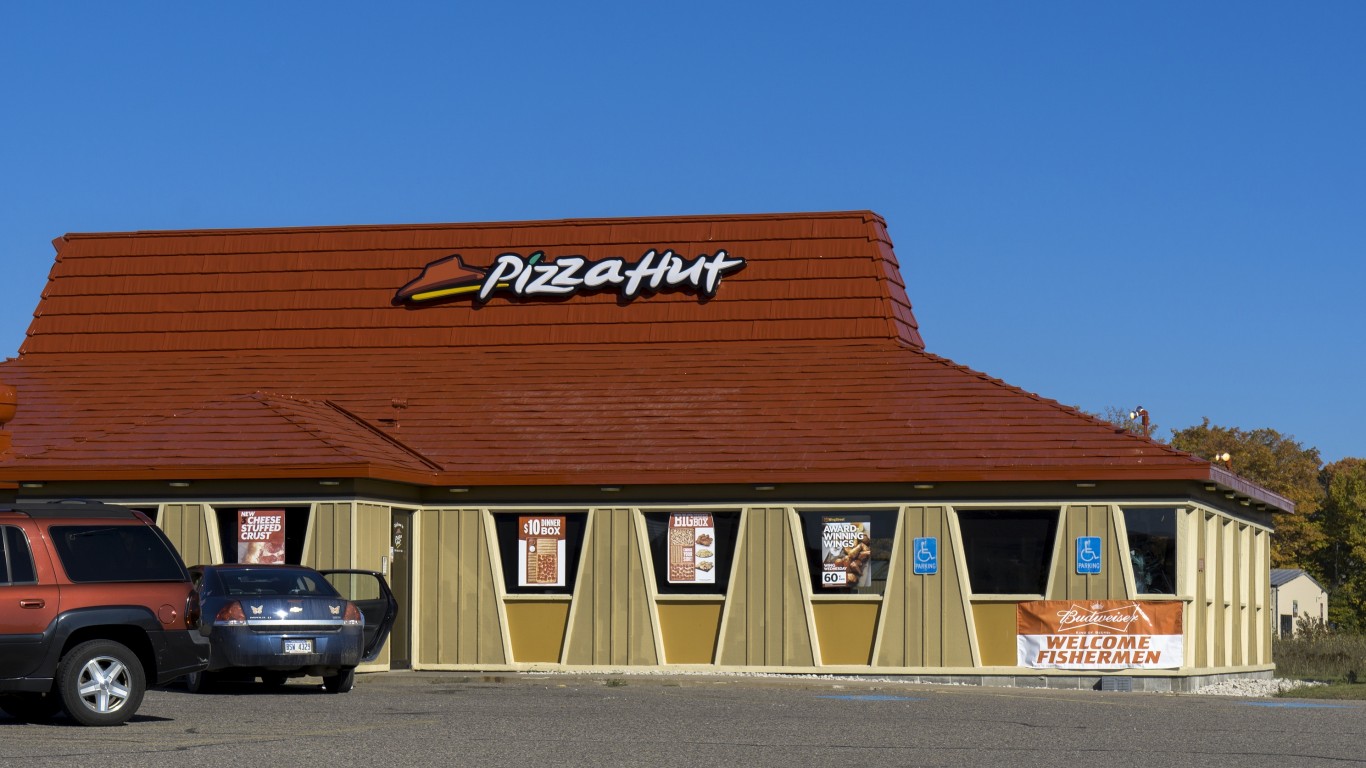
Pizza Hut
> Year founded: 1958
> Original location: Wichita, KS
> Approximate number of units (US only): 6,614
Pizza was still something of a novelty in Wichita, Kansas, back in 1958, when brothers Dan and Frank Carney, both Wichita State University students, decided to borrow $600 from their mother to open a pizza restaurant catering to local students. The small sign only had room for a handful of letters, so “Pizza Hut” it was. Even though the duo had no business or pizza-making training, they learned quickly and the business was a success. The first franchise opened in Topeka the following year, and it became a certified smash after pioneering home pizza delivery. In 1977, after opening 4,000 locations, the duo sold the company to PepsiCo for more than $300 million.
Sizzler
> Year founded: 1958
> Original location: Culver City, CA
> Approximate number of units (US only): 107
Founded as Sizzler Family Steak House by Del and Helen Johnson in Culver City, California, in 1958, Sizzler was an immediate success thanks to its inexpensive prices: a full steak dinner sold for just $1.19, or about $11.58 in 2022 dollars. They were able to keep prices low by cutting all steaks themselves and grinding meat in-house, and the addition of a salad bar helped bring in even more business. The company hasn’t been faring very well lately. It filed for Chapter 11 bankruptcy protection in 2020.
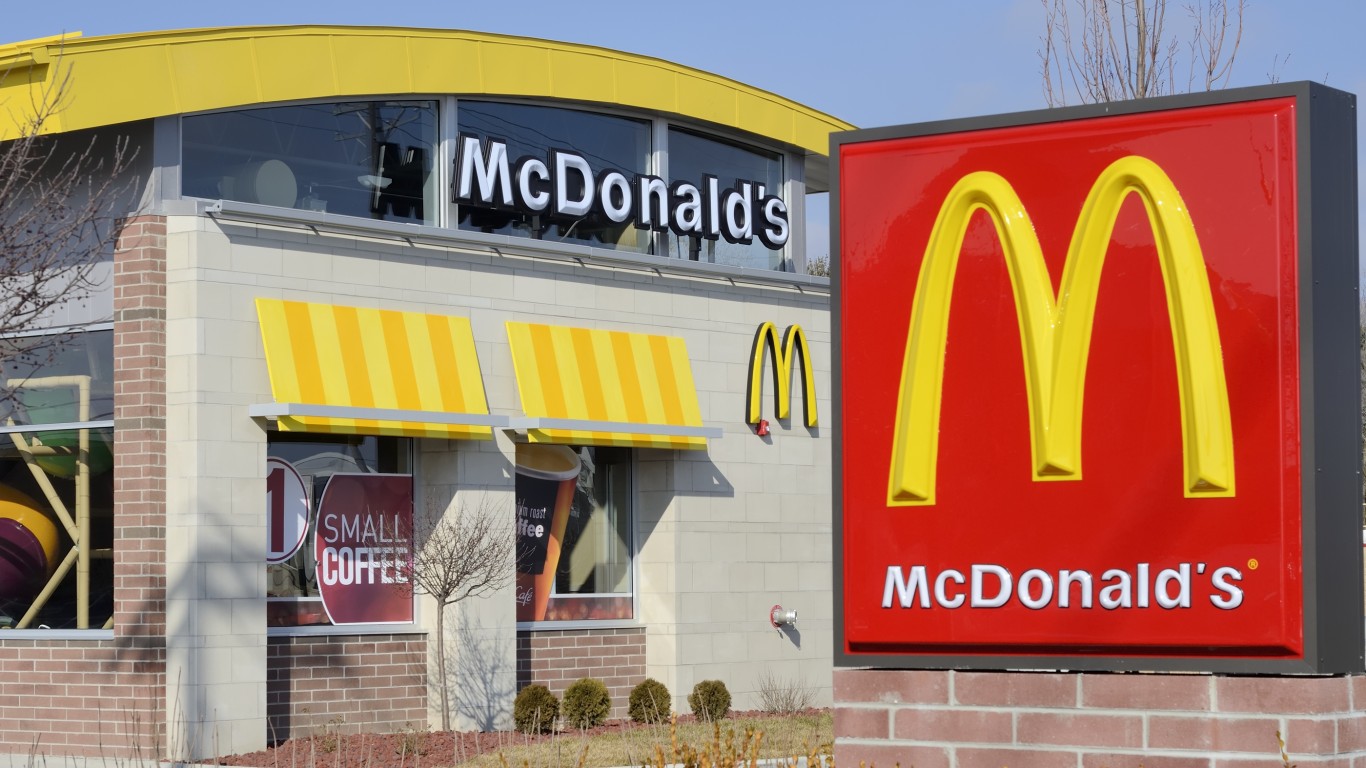
McDonald’s
> Year founded: 1955
> Original location: San Bernardino, CA
> Approximate number of units (US only): 13,257
The most famous fast food chain of them all, with the most famous origin story of them all, McDonald’s was founded by Diсk and Mac McDonald, who opened a restaurant that sold a streamlined menu of burgers, potato chips, drinks, and apple pie in San Bernardino, California, in 1948. Four years later, they built a new building from scratch (complete with the famous Golden Arches) and implemented a whole host of improvements to cook and serve food quicker and get customers out the door quicker. Five franchises had opened by the time a milkshake machine salesman named Ray Kroc took notice in 1954, and he turned the company into a global powerhouse, pushing the McDonald brothers out in the process. Kroc’s first franchise (the company’s ninth restaurant overall) opened in 1955. This is the year that the company currently officially claims it was founded.
[in-text-ad-2]
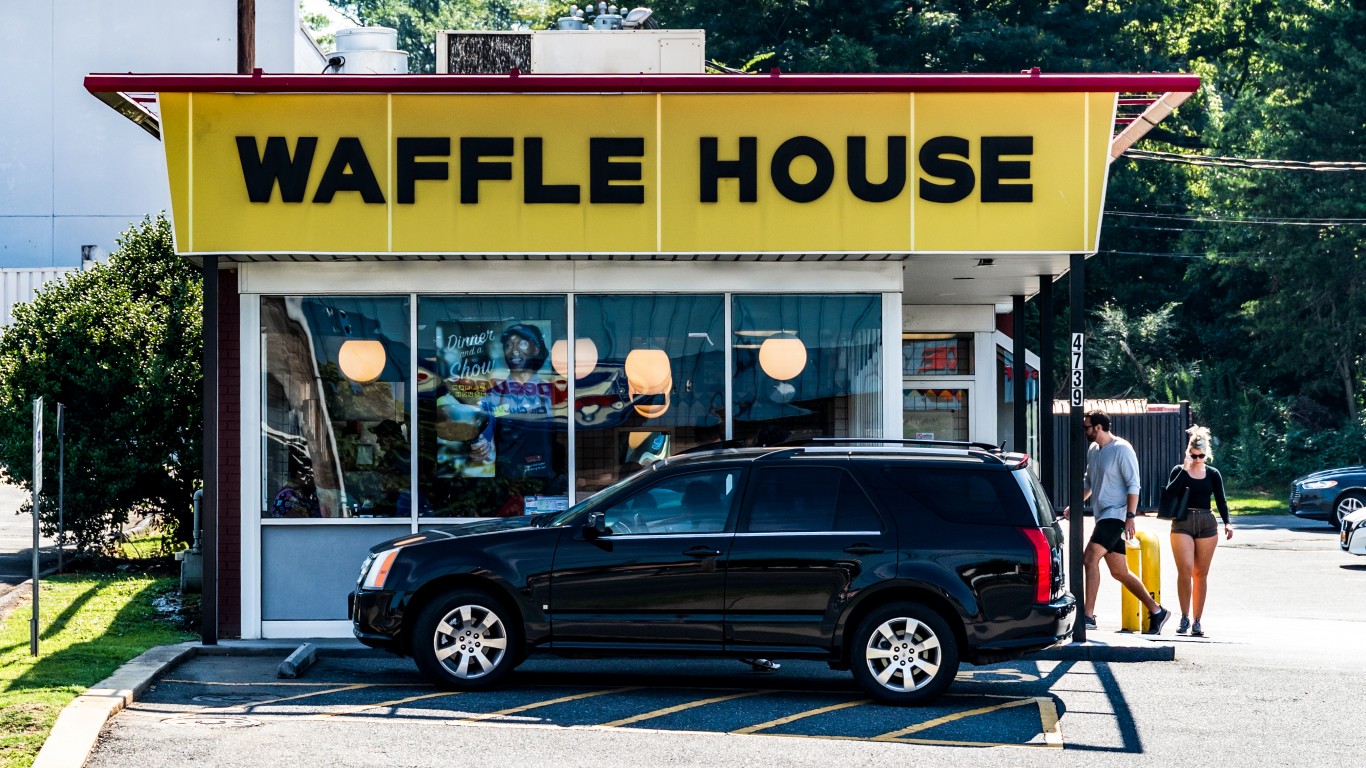
Waffle House
> Year founded: 1955
> Original location: Avondale Estates, GA
> Approximate number of units (US only): 1,952
A beloved Southern staple, Waffle House opened its first location on Labor Day 1955 in Avondale Estates, Georgia, in the Atlanta metropolitan area. It’s still headquartered in Atlanta today. Joe Rogers, who founded it with realtor Tom Forkner, was a former short order cook and restaurant manager who had the idea to combine the speed of fast food with table service and 24/7 availability. As waffles were the most profitable item on the menu, the duo decided on the Waffle House name. Waffle House exploded in popularity along with the development of the interstate highway system and suburbs, and today has more than 2,100 locations. The original location was re-acquired by the company, restored, and opened as a museum in 2007.
Shakey’s Pizza
> Year founded: 1954
> Original location: Sacramento, CA
> Approximate number of units (US only): 52
Shakey’s Pizza – founded in Sacramento, California, in 1954 by Sherwood “Shakey” Johnson and Ed Plummer – was the first franchise pizza chain in America. Shakey played Dixieland jazz (he was inducted into the American Banjo Museum’s Hall of Fame) and brought in jazz musicians to entertain customers, and up until the 1970s classic barbershop song lyrics were provided to customers so they could sing along with the band (it was a simpler time). Second and third locations opened in Oregon in 1956 and 1959, and by the time Johnson sold his interests in the company in 1969 there were 272 locations. The chain has shrunk since then.
[in-text-ad]
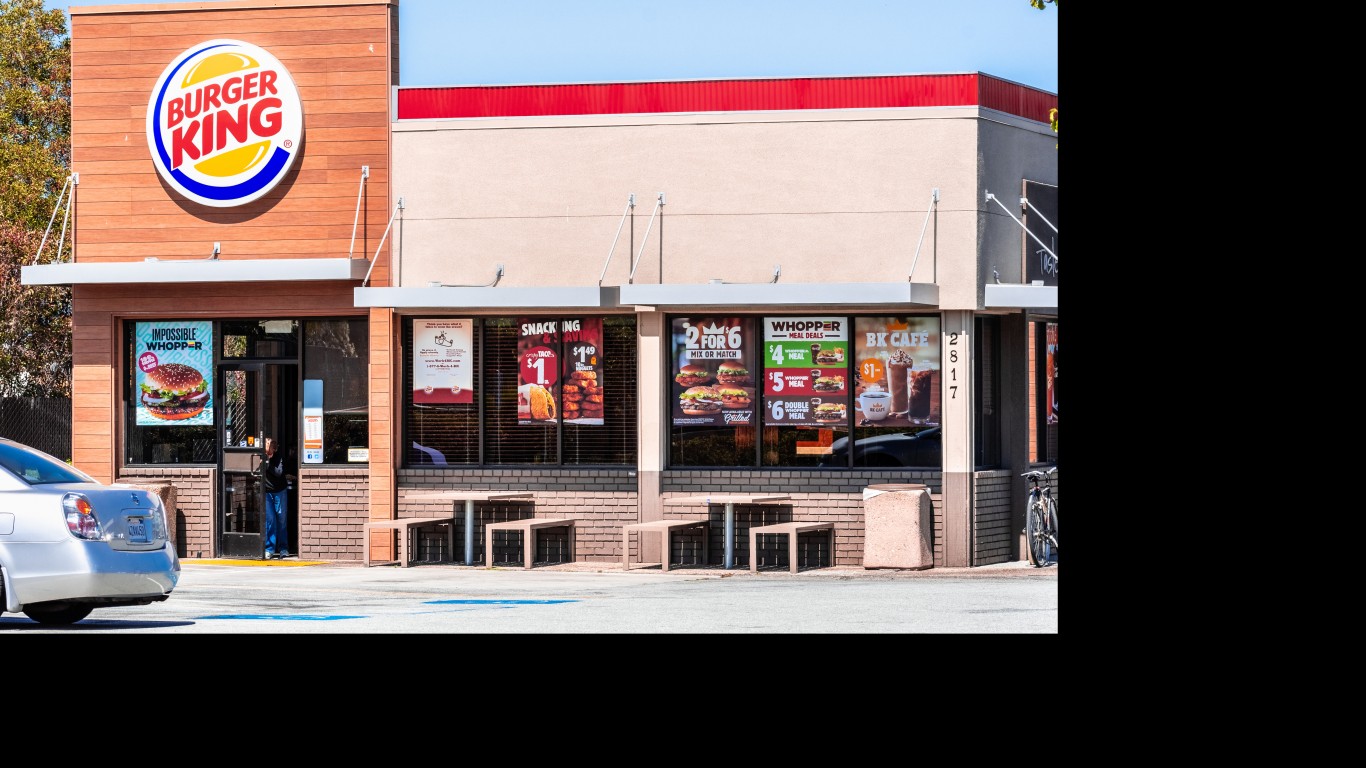
Burger King
> Year founded: 1953
> Original location: Miami, FL
> Approximate number of units (US only): 7,257
The chain known today as Burger King was founded in 1953 as Insta-Burger King, Jacksonville, Florida, residents Keith Kramer and his uncle-in-law, Matthew Burns, opened their first units after buying a piece of cooking equipment called an Insta-Broiler, which was able to cook 12 burgers from both sides simultaneously. The company failed in 1959 and was purchased by two Miami franchisees, James McLamore and David R. Edgerton, who renamed the company Burger King, replaced the Insta-Broiler with a new “Flame Broiler” that’s since become their claim to fame, expanded to more than 250 locations, and sold the company to Pillsbury in 1967.
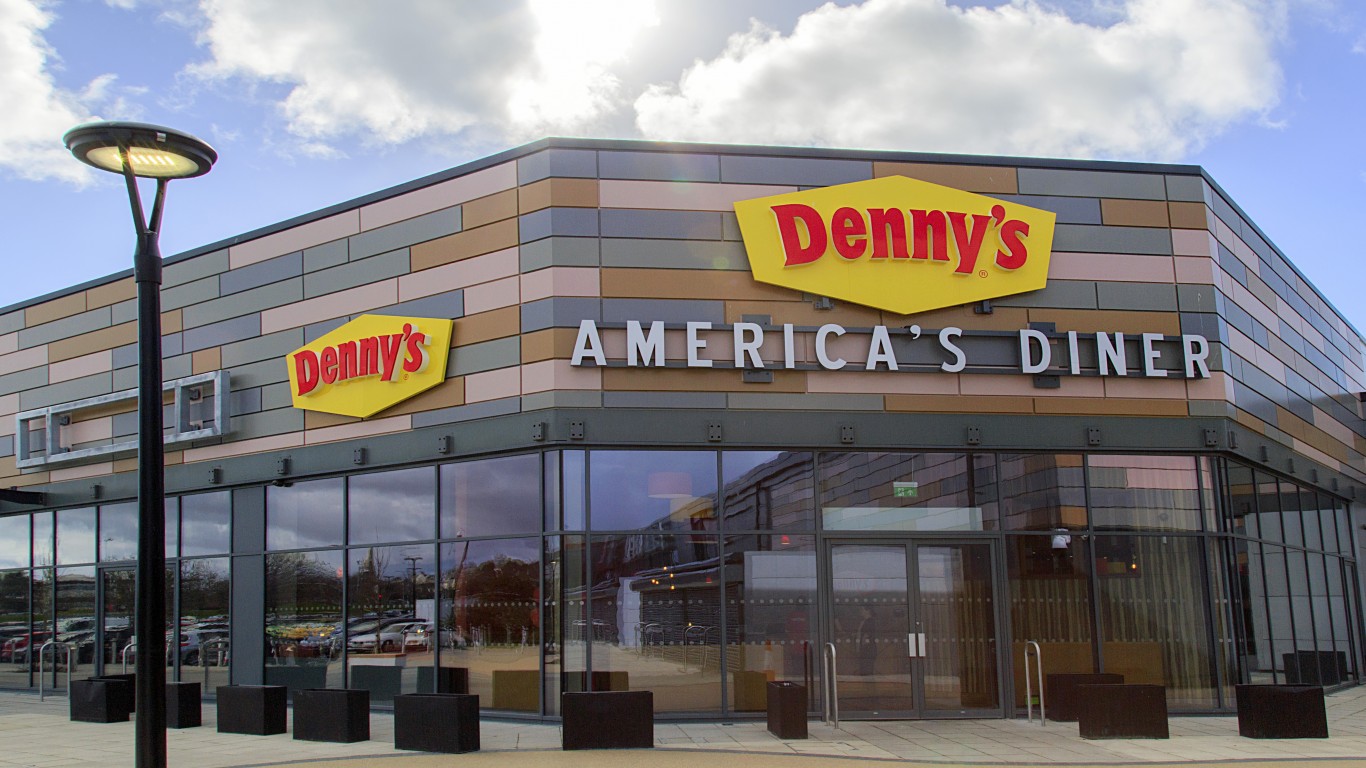
Denny’s
> Year founded: 1953
> Original location: Lakewood, CA
> Approximate number of units (US only): 1,475
Denny’s was founded in Lakewood, California, in 1953 by Harold Butler and Richard Jezak as Danny’s Donuts. After Jezak left three years later, Butler turned their locations into 24-hour coffee shops, and in 1959 changed the name to Denny’s to avoid confusion with a chain called Coffee Dan’s. Denny’s soon caught on in popularity by opening uniquely-designed restaurants with glass walls and boomerang-shaped roofs near highway off-ramps, and there were more than 1,000 locations in all 50 states by 1981.
Sonic
> Year founded: 1953
> Original location: Shawnee, OK
> Approximate number of units (US only): 3,552
When Troy N. Smith Sr., the owner of a Shawnee, Oklahoma, fast food restaurant called Top Hat, happened upon a restaurant in Louisiana that used an intercom system for customers to place their orders, he had a lightbulb moment and hired local jukebox repairmen to install a similar system at his restaurant. This allowed customers to order directly from their cars and have their food brought to them by carhops, and sales immediately tripled. Because the Top Hat name was already trademarked, Smith changed the name to Sonic in 1959 to correspond with their motto, “Service with the Speed of Sound,” and dovetail with the burgeoning Space Age.
[in-text-ad-2]
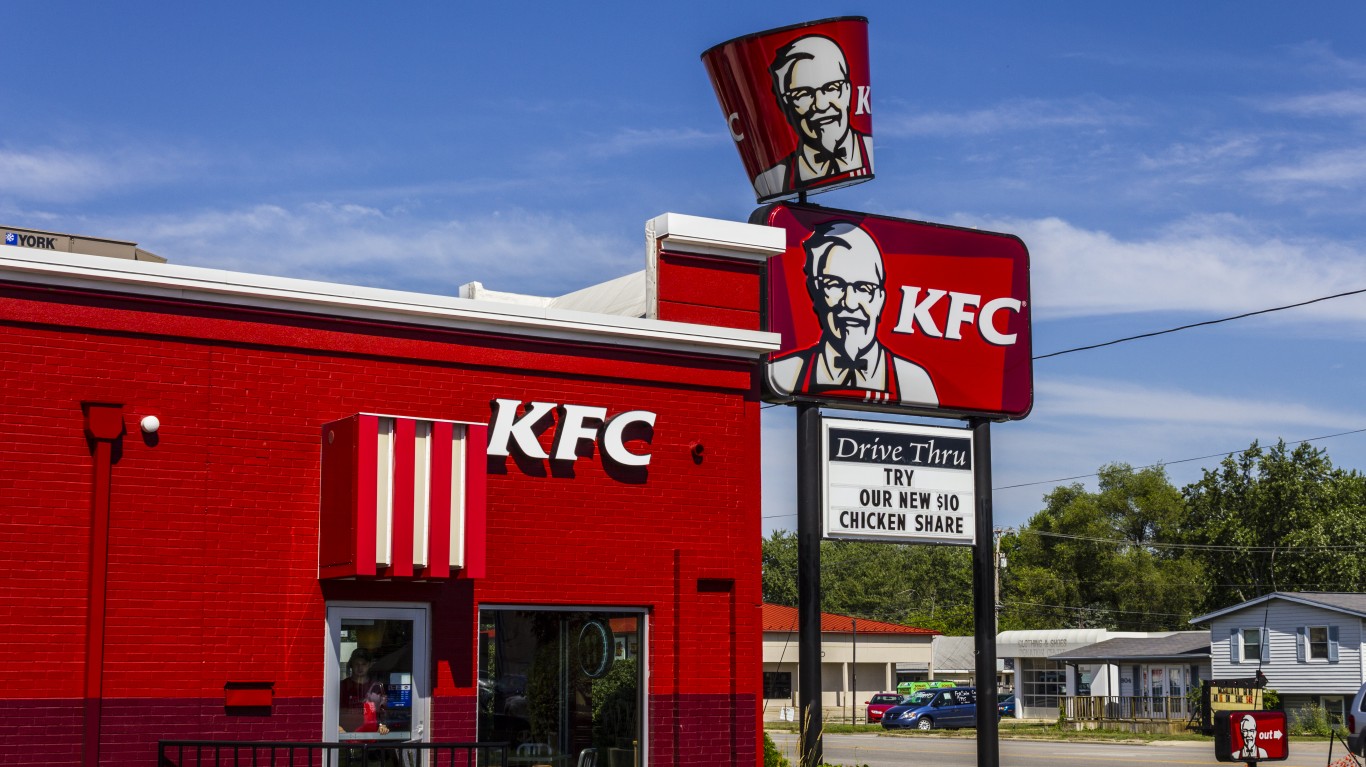
KFC
> Year founded: 1952
> Original location: Salt Lake City, UT
> Approximate number of units (US only): 3,984
“Colonel” Harland Sanders is a fast-food icon, not just because he founded KFC, but also because he played a huge role in turning fried chicken from a special occasion dish to a fast food staple. This was all due to his brilliant idea to modify a then-new invention, the pressure cooker, into a pressure fryer, which vastly increased the speed at which he could cook fried chicken to serve to customers at his North Corbin, Kentucky, restaurant and motel, called Sanders Court & Café. By 1940, he’d perfected his fried chicken recipe (which included his signature 11 herbs and spices), and in 1952 he had another brilliant idea: to franchise his recipe to his friend Pete Harman, who operated one of Salt Lake City’s largest restaurants. Sanders then traveled the country franchising his recipe and training restaurant operators on how to cook his chicken, collecting a cut of the profits of every order sold. A sign painter hired by Harman coined the term “Kentucky Fried Chicken,” a name that many recipe franchisees then changed their restaurants’ names to, and by 1963 there were more than 600 franchisees nationwide.
Jack in the Box
> Year founded: 1951
> Original location: San Diego, CA
> Approximate number of units (US only): 2,228
If you’ve ever ordered fast food from a drive-thru, you have Jack in the Box, and its founder Robert O. Peterson, to thank. Peterson already owned a handful of successful circus-themed fast food restaurants, called Topsy’s Drive-Ins, when he decided to convert one into a hamburger stand and experiment with a new concept called the two-way intercom system; he called this location Jack in the Box. Customers could drive up and place their order via intercom, then drive to a window where they could pick up their order; this allowed employees to work on multiple orders at the same time, vastly increasing the speed of service. Due to its smashing success, all Topsy’s locations were soon rebranded Jack in the Box, and 180 locations opened by 1960.
[in-text-ad]
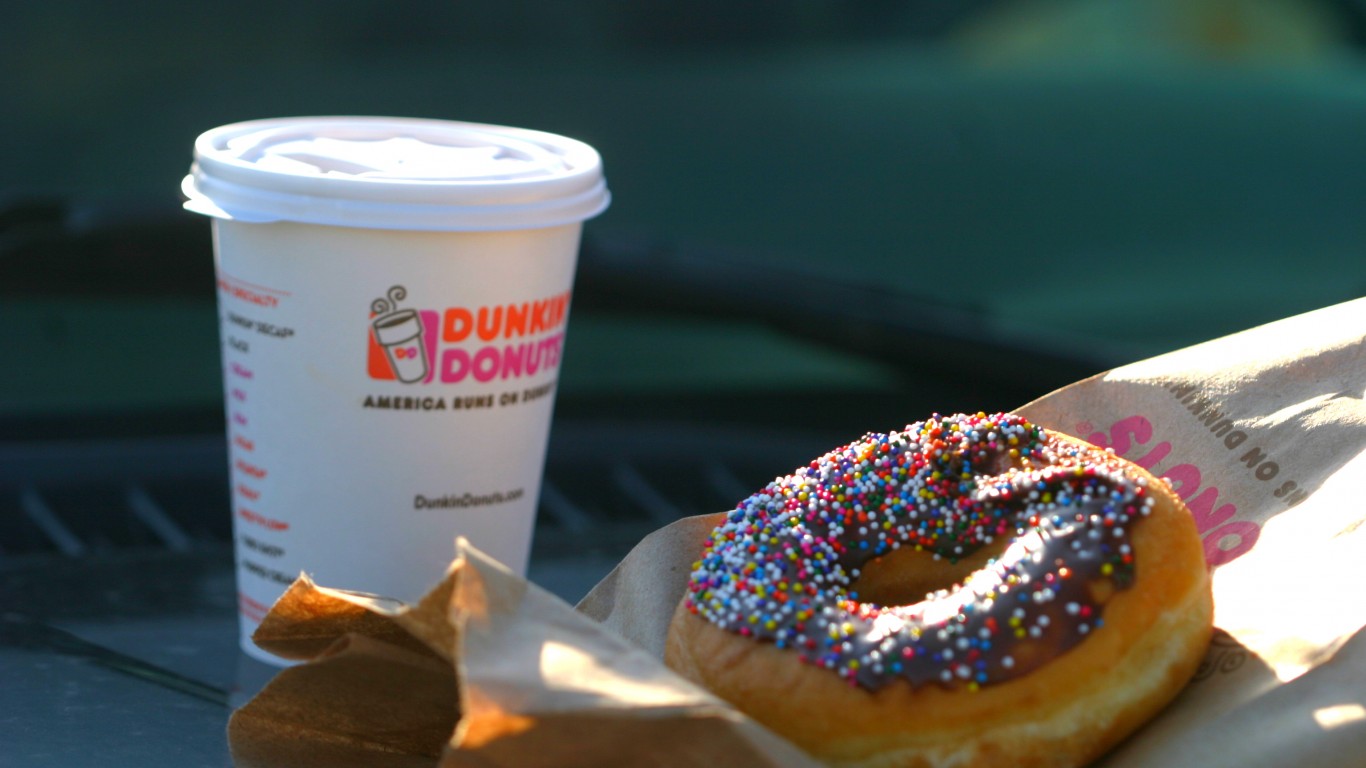
Dunkin’
> Year founded: 1949
> Original location: Quincy, MA
> Approximate number of units (US only): 8,500
Dunkin’ Donuts (officially shortened to Dunkin’ in 2018) was founded as a coffee shop called Open Kettle by William Rosenberg in 1948; he changed the name to Dunkin’ Donuts in 1950. Rosenberg got his start selling food at construction sites and factories, and noticed that doughnuts and coffee were far-and-away his top sellers. His operation was a success, and Rosenberg started franchising in 1955. By 1963, when William’s son Robert took over as CEO (at age 25!), there were 100 locations but menus varied wildly; some only sold coffee and doughnuts while others served full breakfasts. Robert standardized the menu, took the company public in 1968, oversaw a massive expansion, and stayed on as CEO until retiring in 1998.
Skyline Chili
> Year founded: 1949
> Original location: Cincinnati, OH
> Approximate number of units (US only): 160
A Cincinnati staple since 1949, Skyline Chili was founded by Greek immigrant Nicholas Lambrinides and his three sons. Lambrinides, who arrived in the US in 1912, spent decades perfecting his chili recipe before opening in a neighborhood with a panoramic view of downtown (hence the name). The restaurant was a huge success, and a second location opened in 1953. Lambrinides’ sons continued to expand throughout Cincinnati after Nicholas’ 1962 passing, and his original secret chili recipe – not chili in the Texas sense but a thick, Greek-spiced meat sauce that tops hot dogs and spaghetti – has remained unchanged since day one.
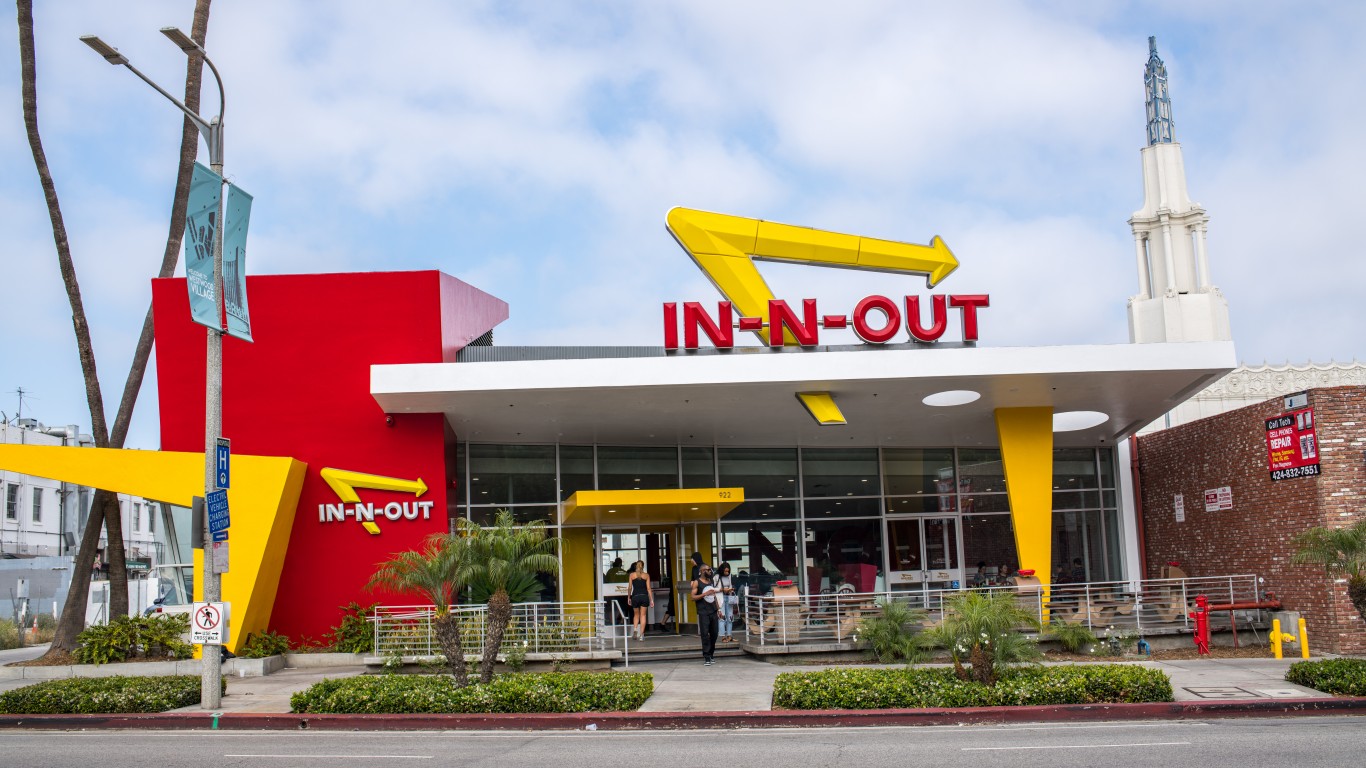
In-N-Out Burger
> Year founded: 1948
> Original location: Baldwin Park, CA
> Approximate number of units (US only): 358
Few restaurant chains are as synonymous with California sunshine as In-N-Out Burger, which was founded in the LA suburb of Baldwin Park by Harry and Esther Snyder in 1948 as the first drive-thru hamburger stand in all of California. Like Jack in the Box, it allowed customers to place orders via a two-way intercom system. The concept was successful, but by the time the couple’s son, 24 year-old Rich Snyder, took over in 1976, there were only 18 locations. Rich oversaw a rapid expansion before sadly dying in a plane crash in 1993; his brother Guy then grew the business to 140 locations before also tragically dying, of an accidental drug overdose in 1999. The current president and sole owner, Guy’s daughter Lynsi Snyder, took over in 2010 and became the youngest American female billionaire at age 30 in 2012.
[in-text-ad-2]
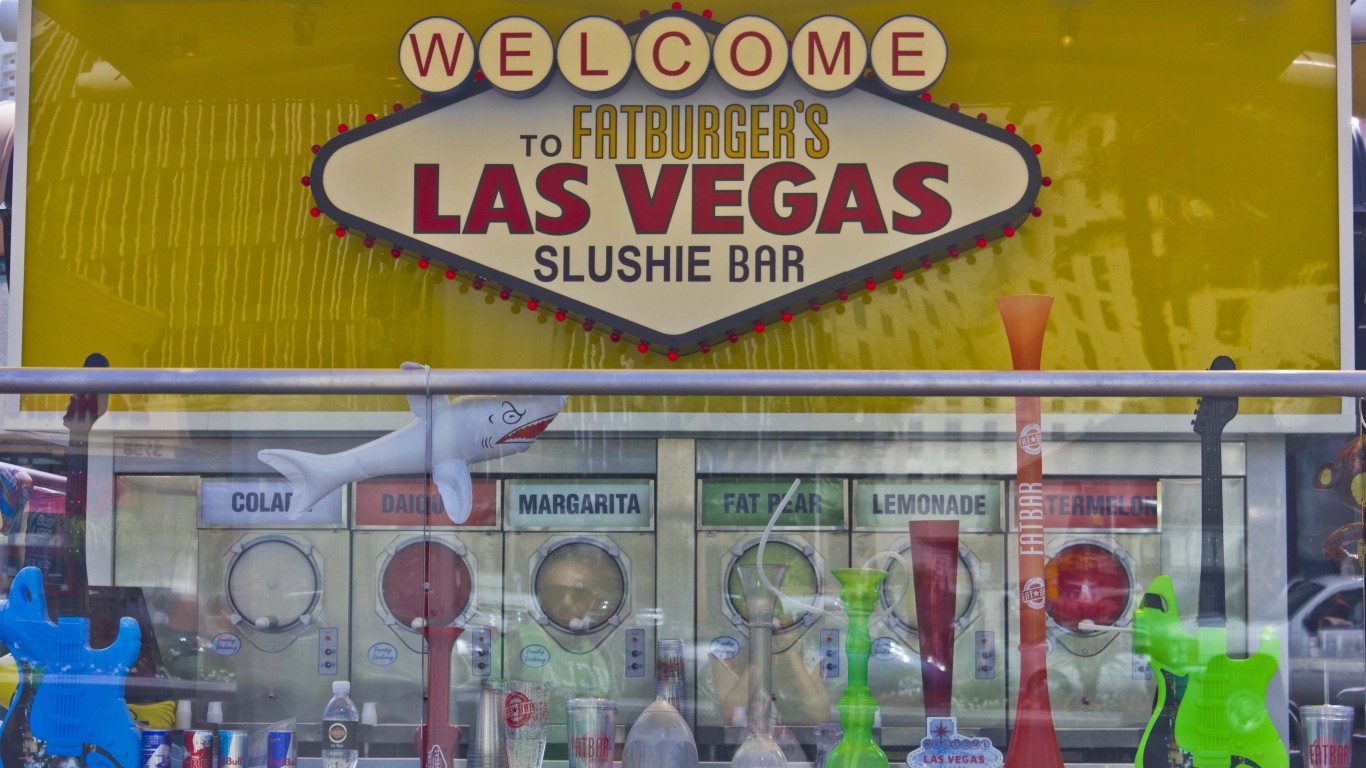
Fatburger
> Year founded: 1947
> Original location: Los Angeles, CA
> Approximate number of units (US only): 100
Another Southern California staple, Fatburger was founded by Lovie Yancey, an African-American woman, and a handful of start-up partners in LA’s Exposition Park neighborhood in 1947. It was called Mr. Fatburger until 1952, when Yancey bought out her partners (becoming sole owner) and simplified the name. Yancey was a beloved fixture at the original location (counting Redd Foxx and Ray Charles as regulars) until she sold the company to an investment group in 1990; she passed away at age 96 in 2008. Fatburger remained a SoCal chain until the late 1990s, but today there are more than 200 locations worldwide.
Dickey’s Barbecue Pit
> Year founded: 1941
> Original location: Dallas, TX
> Approximate number of units (US only): 457
America’s largest barbecue chain, Dickey’s Barbecue Pit was founded by Travis Dickey in Dallas, Texas, in 1941. It began franchising in 1994 and remained a popular regional chain until 2006, when Travis’ grandson, Roland Dickey, Jr., took over as CEO and launched a massive expansion from just 20 locations to more than 500 around the country and world. Dickey’s serves Texas-style barbecue staples like brisket, pulled pork, ribs, chicken, and hot links, all smoked over hickory on-site at each location.
[in-text-ad]
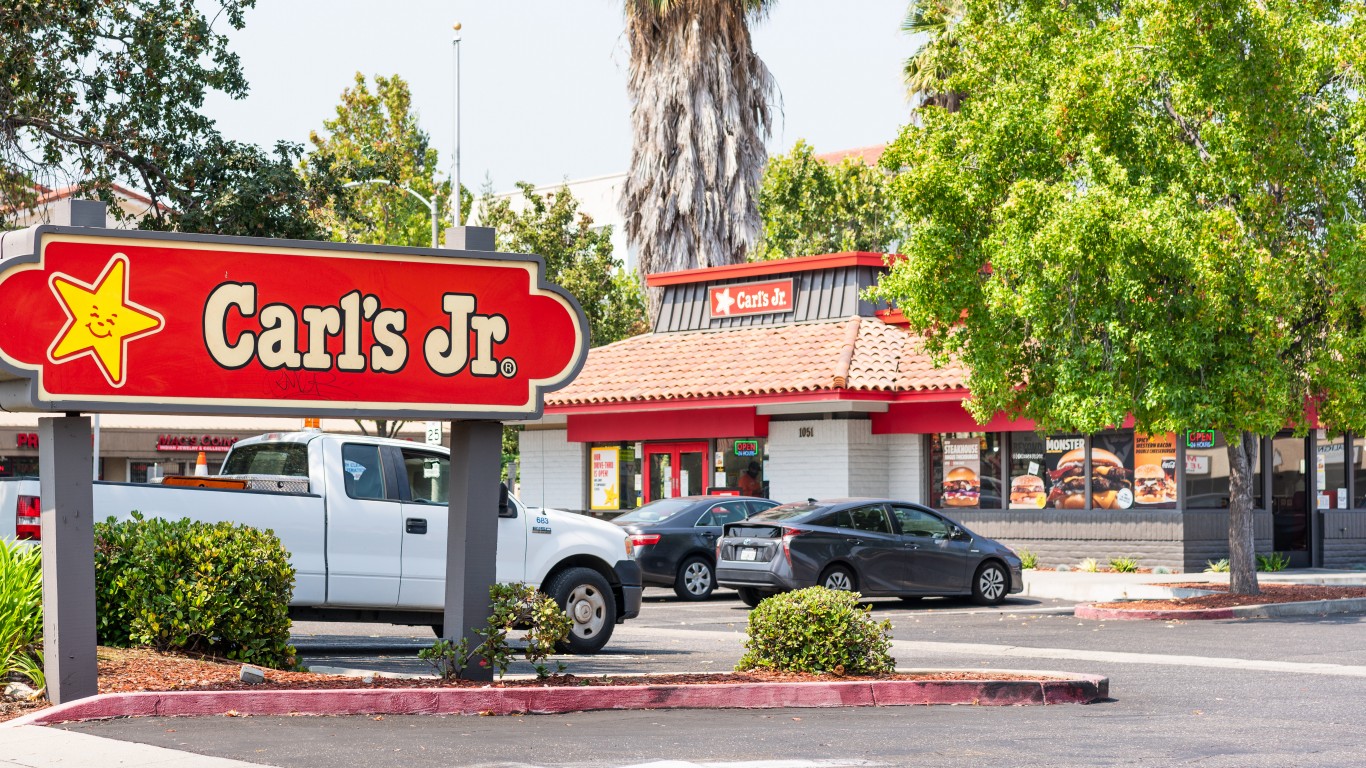
Carl’s Jr.
> Year founded: 1941
> Original location: Los Angeles, CA
> Approximate number of units (US only): 550
Back in 1941, Carl Karcher and his wife Margaret opened a small Los Angeles hot dog cart. It proved to be successful enough for them to expand out to a few additional carts and eventually an Anaheim restaurant called Carl’s Drive-In Barbecue. In 1956, Karcher opened two additional restaurants in Anaheim and Brea, which he dubbed Carl’s Jr. because they were smaller than the original Carl’s Drive-In. Four Orange County locations of Carl’s Jr. opened by 1960, and by 1975 there were more than 100. The chain’s parent company bought the Hardee’s chain in 1997, and the merged operations have more than 3,800 franchised or company-owned locations across the nation and around the world.
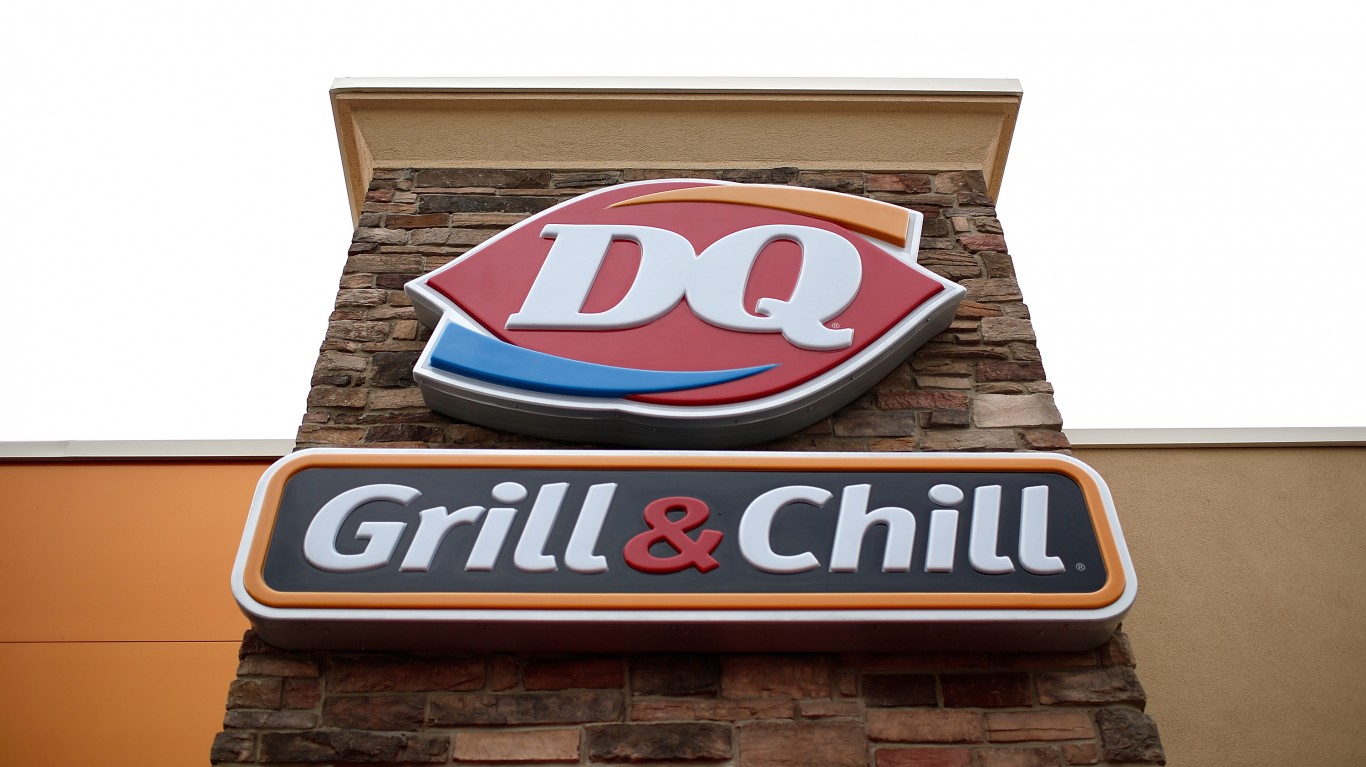
Dairy Queen
> Year founded: 1940
> Original location: Joliet, IL
> Approximate number of units (US only): 4,358
Sherb Noble ran an ice cream shop in Kankakee, Illinois, buying his ice cream from J.F. Fremont and his son Alex. In 1938, the Fremonts developed the formula for the then-unheard-of soft serve ice cream, and convinced Noble to sell it at his shop. After dishing out 1,600 servings of this novel creation in two hours, the trio knew that they had something special on their hands. Two years later, they opened the first location of Dairy Queen in Joliet, just outside Chicago. They set up a franchise system right away, opening 10 locations within the first year and 100 by 1947.
Big Boy
> Year founded: 1936
> Original location: Glendale, CA
> Approximate number of units (US only): 69
Big Boy has a long history with lots of different corporate owners and offshoots, but it all started as a single restaurant called Bob’s Pantry, opened by Bob Wian in Glendale, California, in 1956. Six months after opening, he introduced his signature hamburger, which he dubbed the Big Boy; by slicing a bun into thirds and adding two patties, he essentially invented the double deck hamburger. The Big Boy proved to be such a hit that when additional locations opened he called them Bob’s Big Boy. Twenty-three Bob’s Big Boys had opened in Southern California by 1965, the same year a comic book featuring its famous mascot, “Adventures of the Big Boy” debuted. Additional Big Boys (sans the “Bob’s”) opened throughout the US and dozens remain in business, but today only a handful of original Bob’s Big Boys remain in operation.
[in-text-ad-2]
Krystal
> Year founded: 1932
> Original location: Chattanooga, TN
> Approximate number of units (US only): 360
White Castle (see below) inspired a lot of imitators, most of which have gone the way of the dodo. Krystal, however, is still going strong with about 360 locations nationwide. It was founded in Chattanooga, Tennessee, 1932 by Rody Davenport Jr. and J. Glenn Sherrill, who predicted that even though the Great Depression was raging, folks would still spend money at a restaurant that was clean, cheap, and high-quality. They were proven right, and their menu of small, square sliders topped with steamed onions proved to be a hit.
Maid-Rite
> Year founded: 1926
> Original location: Urbandale, IA
> Approximate number of units (US only): 31
A Maid-Rite, also called a loosemeat or tavern sandwich, is a beloved Midwestern sandwich of seasoned ground meat on a bun; think of it as a sloppy joe without the sauce. It was invented by an Iowa butcher named Fred Angell, who opened a restaurant to serve them in 1926. Not only did the original Maid-Rite introduce this regional icon, it was also the first restaurant to feature carhop service, where orders were brought directly to customers in their cars. Maid-Rite remains a popular Iowa chain, with 21 locations in the state and about 10 elsewhere.
[in-text-ad]
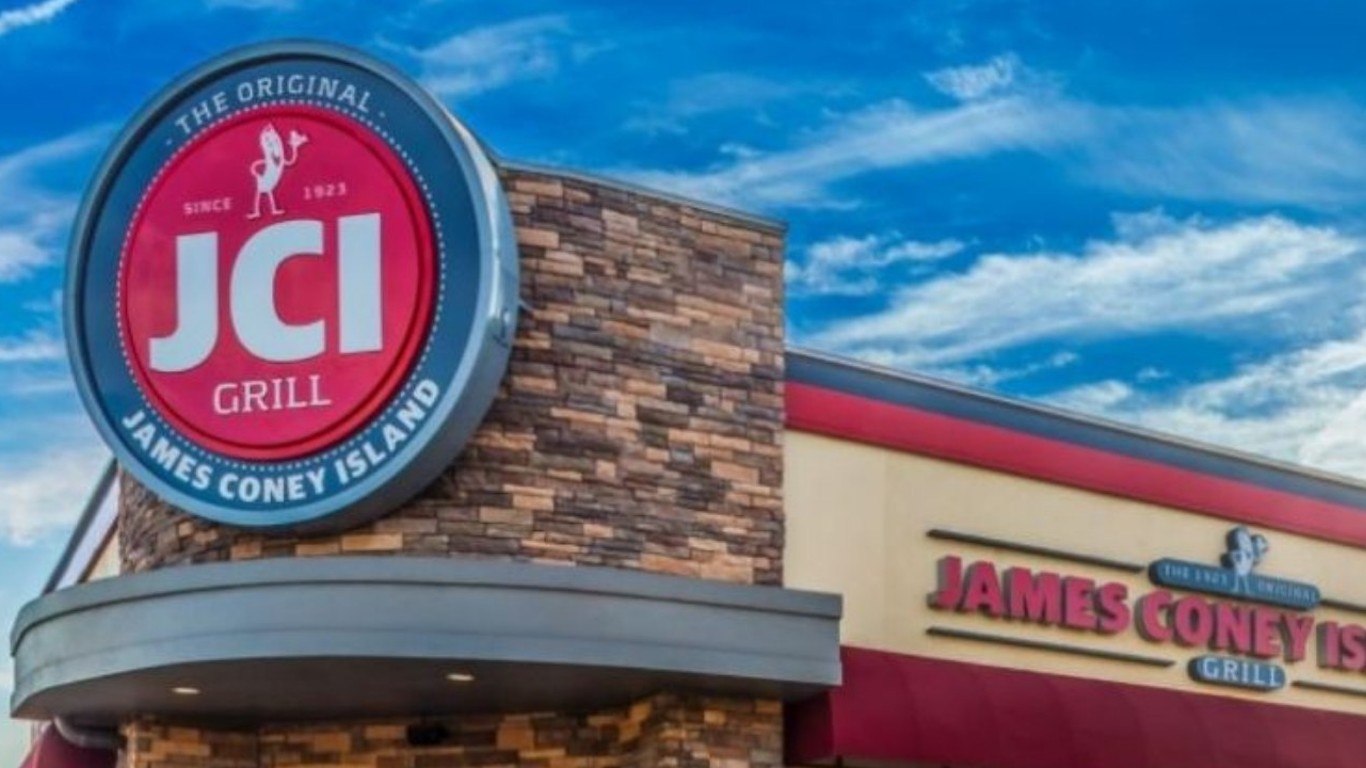
James Coney Island
> Year founded: 1923
> Original location: Houston, TX
> Approximate number of units (US only): 17
If you happen to be hundreds or thousands of miles outside of New York City and you encounter a restaurant that specializes in coneys, or Coney Islands, don’t be confused: it’s the old-timey name of a style of hot dog brought west by Greek and Macedonian immigrants, topped with a savory, Greek-spiced meat sauce and other optional toppings including diced onions and mustard. You’ll find coney stands in states including Michigan, Indiana, Minnesota, and Ohio, as well as Texas by way of Houston-based James Coney Island. Founded in 1923 by two Greek immigrant brothers, James and Tom Papadakis, James Coney Island was one of the city’s first major hot dog vendors. It remained family-owned until being sold to private investors in 1990, and there are still 17 locations in the city.
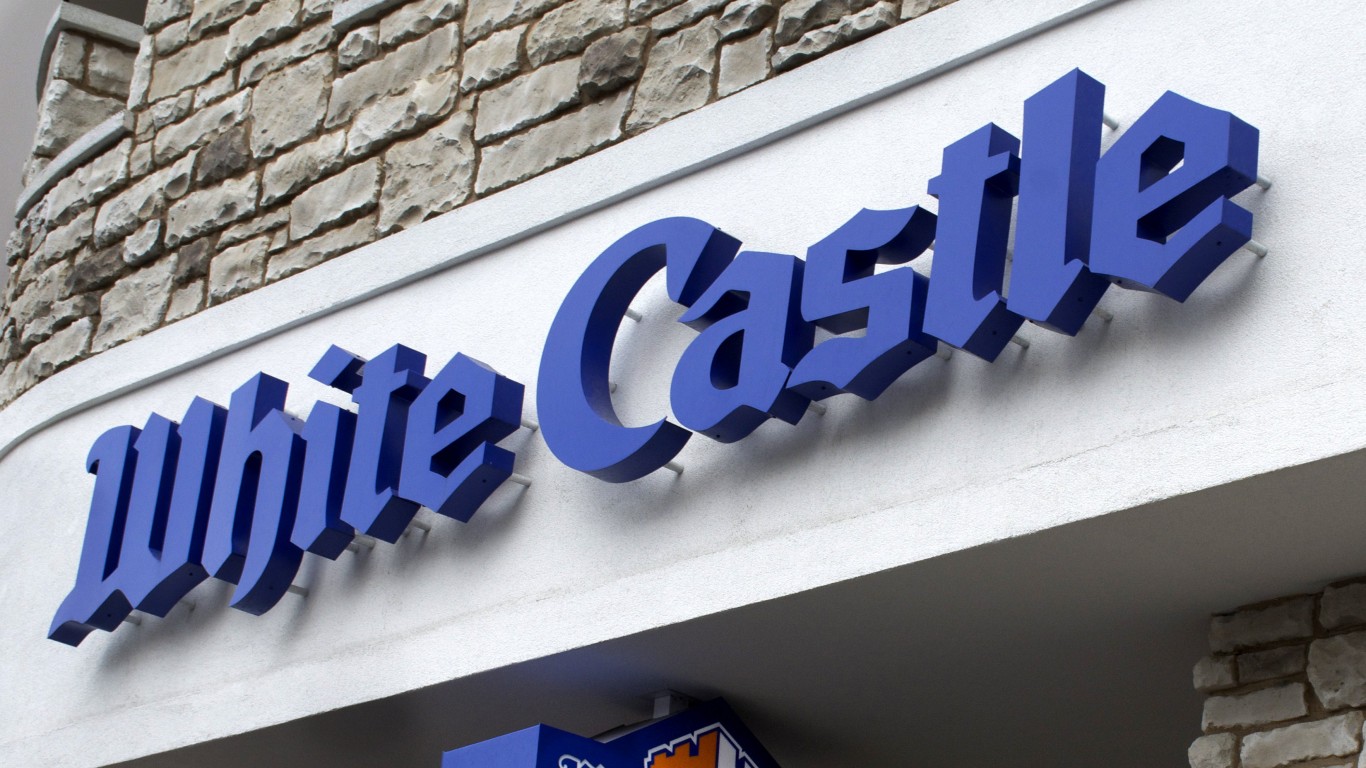
White Castle
> Year founded: 1921
> Original location: Wichita, KS
> Approximate number of units (US only): 355
Fast food hamburgers didn’t really exist until White Castle was founded in Wichita, Kansas, by food stand owner Walter Anderson and insurance salesman Billy Ingram in 1921. Ground beef still made a lot of Americans squeamish at the time due to the 1906 publication of Upton Sinclair’s exposé of the meatpacking industry, “The Jungle,” so the duo decided to lure in customers by outfitting their small, white buildings with spotless stainless steel interiors and their employees with spotless white uniforms. Their small, inexpensive burgers were a smash hit, and a second location opened the following year in El Dorado, Kansas. It continued its expansion nationwide, spreading its influence and spawning countless imitators in the process.
A&W
> Year founded: 1919
> Original location: Lodi, CA
> Approximate number of units (US only): 517 (including co-brands with KFC or Long John Silver’s and convenience store locations)
Way back in 1919, an entrepreneur named Roy W. Allen set up a roadside stand to sell a rich new carbonated drink called root beer to spectators at a parade for returning World War I vets in Lodi, California. Along with his employee, Frank Wright, they opened their first restaurant (with root beer as their signature offering) in 1923; the name A&W was derived from their initials. It soon became famous for its “frosty mugs” of root beer and curbside service, and the following year Allen bought out Wright’s share of the business. He began franchising his root beer in 1925 while allowing franchisees to add other menu items of their choosing; this is argued to be the very first successful example of food franchising. More than 200 franchises had opened by 1930, and Allen sold the company and retired a wealthy man in 1950.
[in-text-ad-2]
Nathan’s Famous
> Year founded: 1916
> Original location: Coney Island, NY
> Approximate number of units (US only): 295 (including delivery-only locations)
Polish immigrant Nathan Handwerker arrived in New York in 1912, and quickly got a job serving thin German sausages called frankfurters (made handheld by tucking them into buns) at popular Coney Island restaurant Feltman’s, for 10 cents each. Encouraged to go into business on his own by singing waiters Eddie Cantor and Jimmy Durante (as legend has it), he built a stand a couple blocks away and started selling frankfurters of his own, based on a recipe from his wife, for five cents instead. He lured cleanliness skeptics by bringing in men wearing surgeon’s smocks to be seen eating hot dogs in front of the stand, and the crowds appeared soon after and never left. The original Nathan’s remains a must-visit Coney Island destination to this day, and a nationwide expansion was kicked off by Nathan’s son, Murray, in 1959.
It’s Your Money, Your Future—Own It (sponsor)
Are you ahead, or behind on retirement? For families with more than $500,000 saved for retirement, finding a financial advisor who puts your interest first can be the difference, and today it’s easier than ever. SmartAsset’s free tool matches you with up to three fiduciary financial advisors who serve your area in minutes. Each advisor has been carefully vetted and must act in your best interests. Start your search now.
If you’ve saved and built a substantial nest egg for you and your family, don’t delay; get started right here and help your retirement dreams become a retirement reality.
Thank you for reading! Have some feedback for us?
Contact the 24/7 Wall St. editorial team.

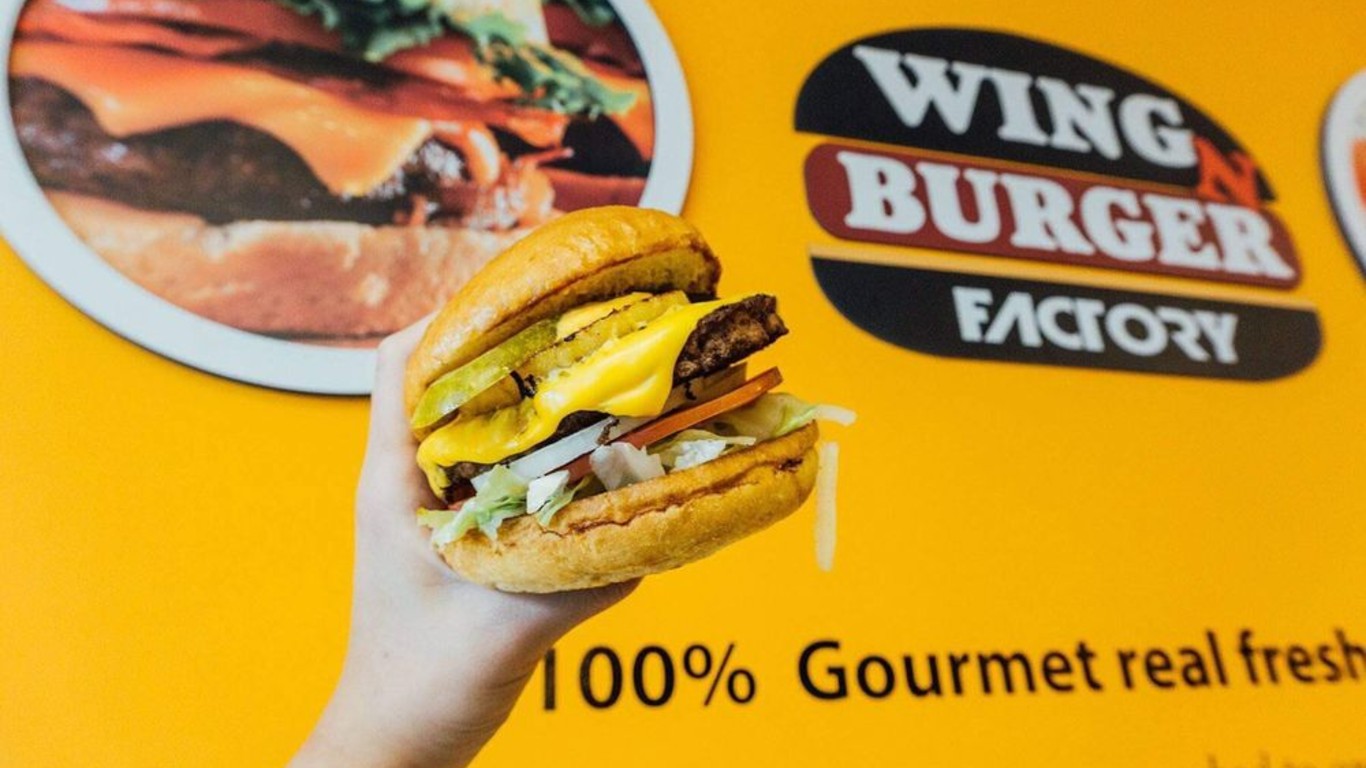 24/7 Wall St.
24/7 Wall St. 24/7 Wall St.
24/7 Wall St.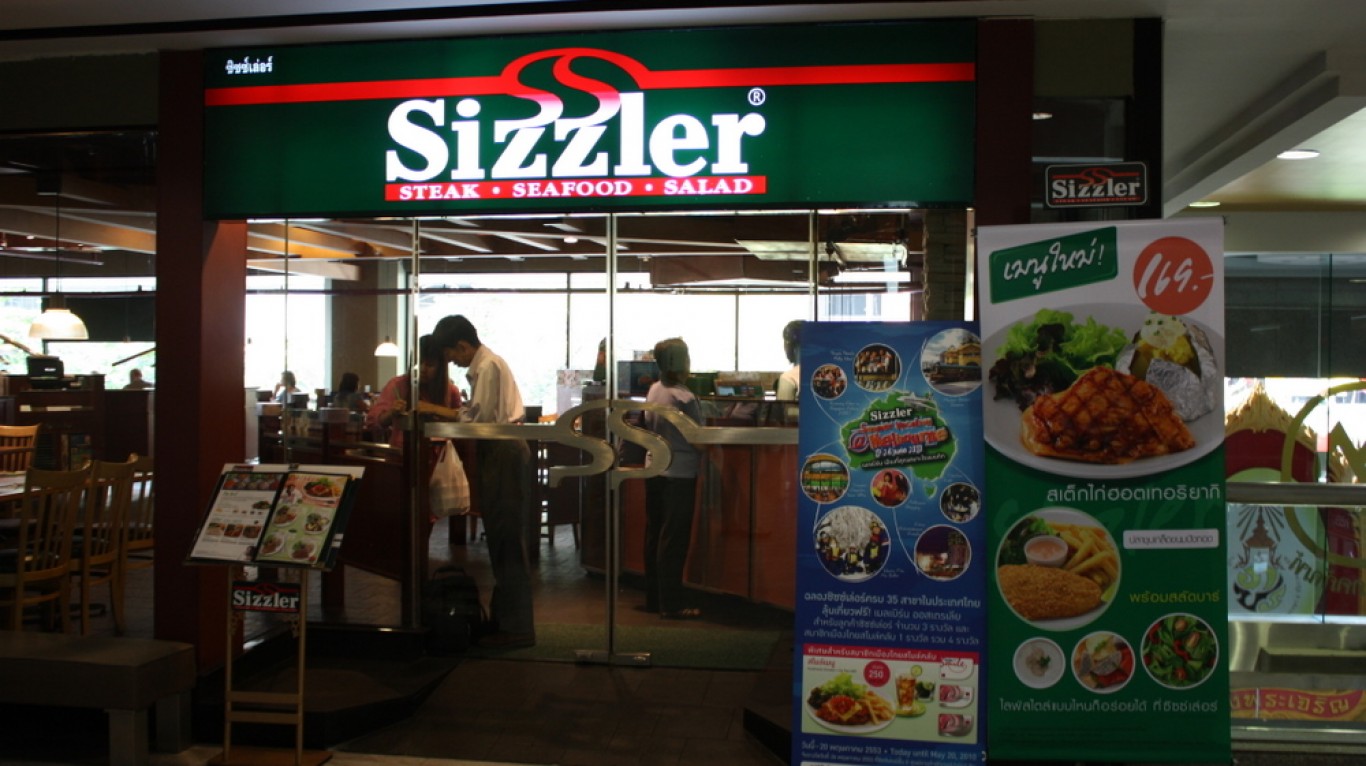
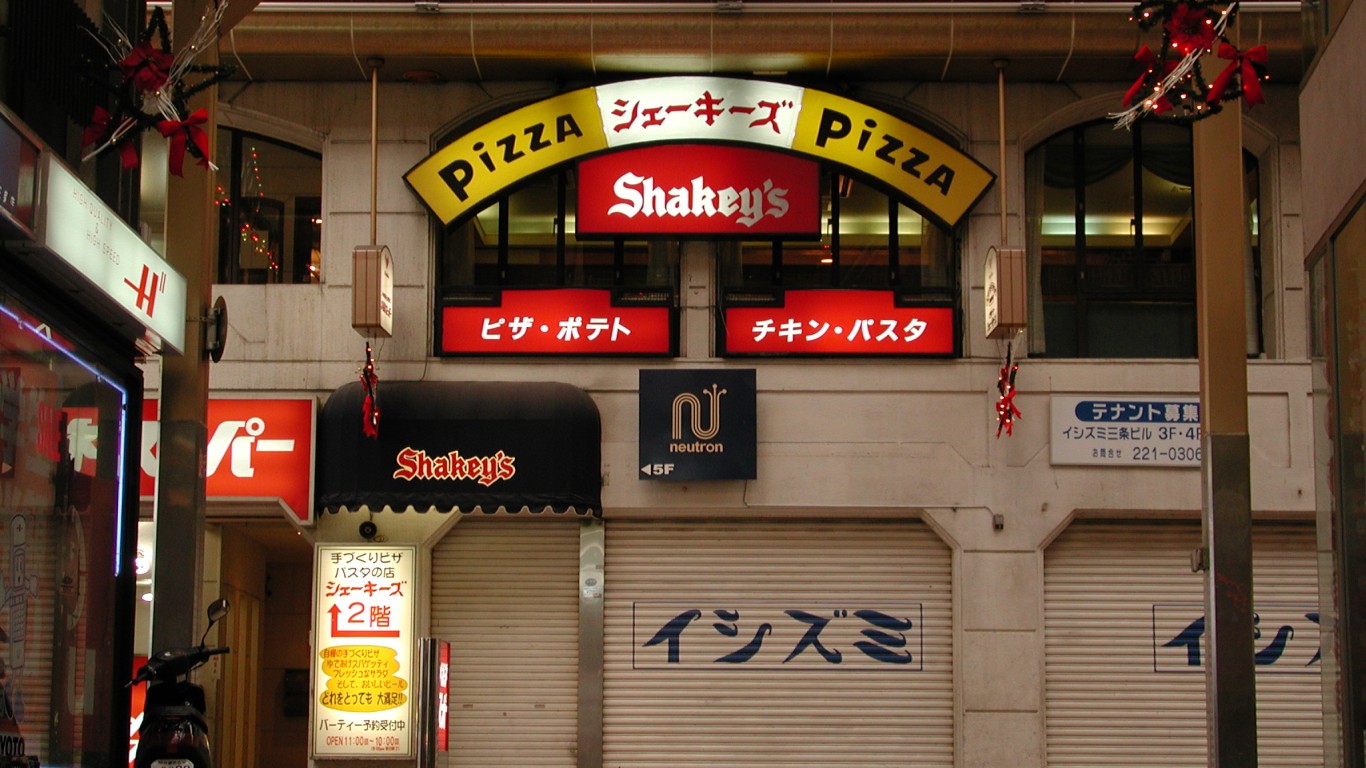
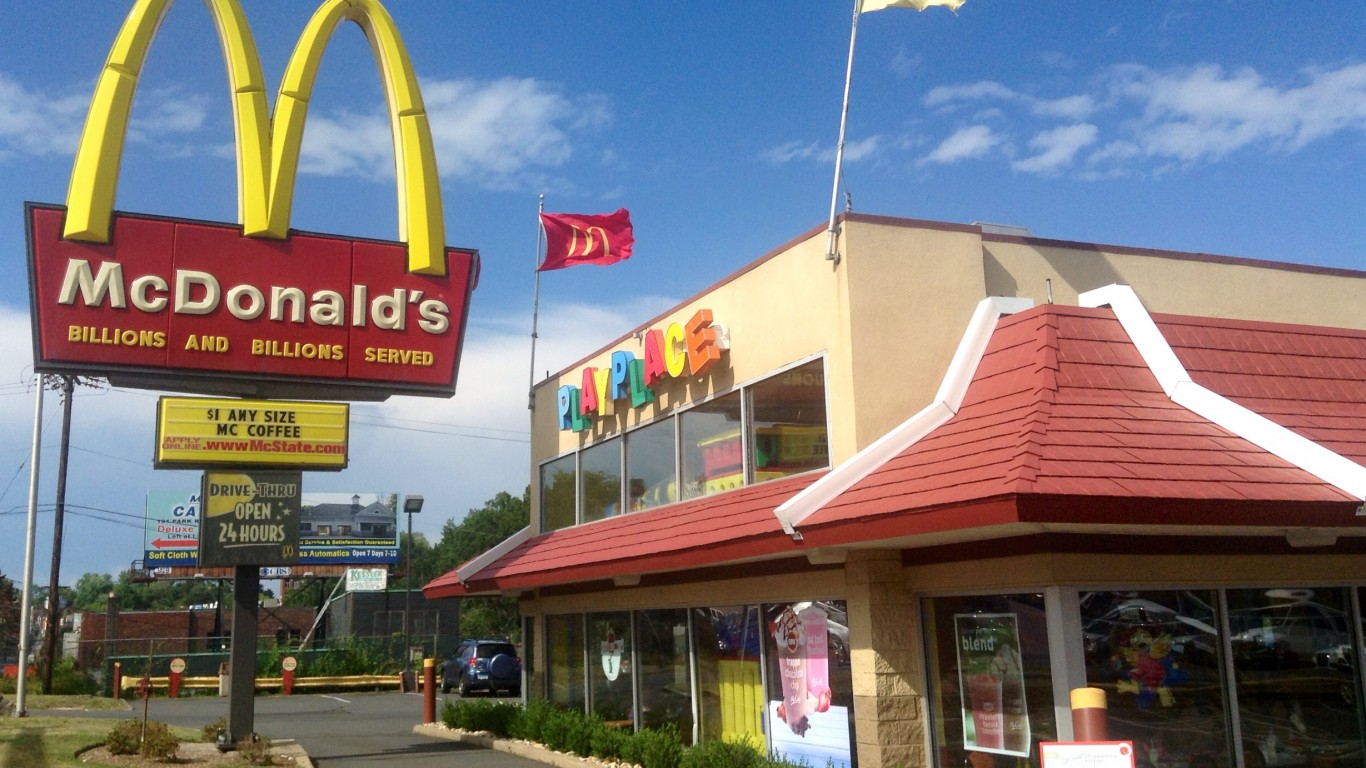 24/7 Wall St.
24/7 Wall St.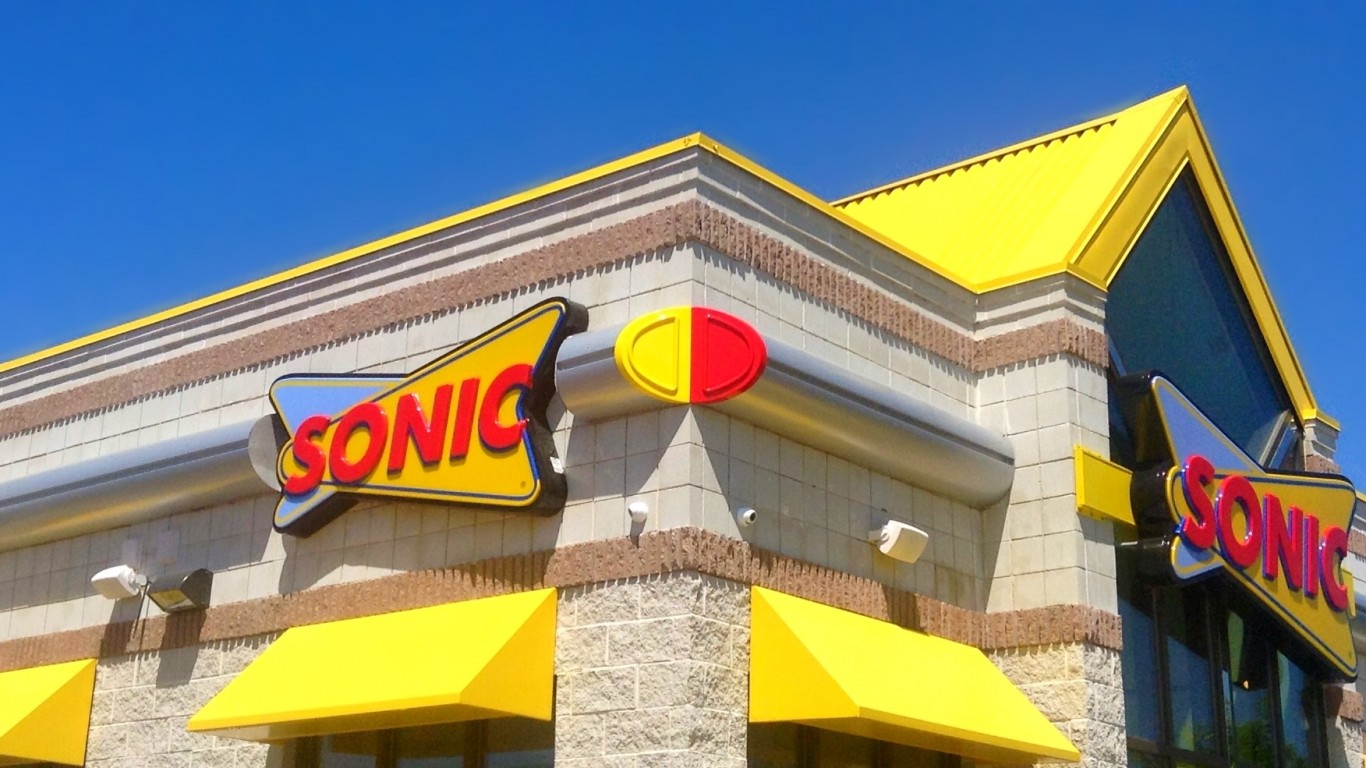
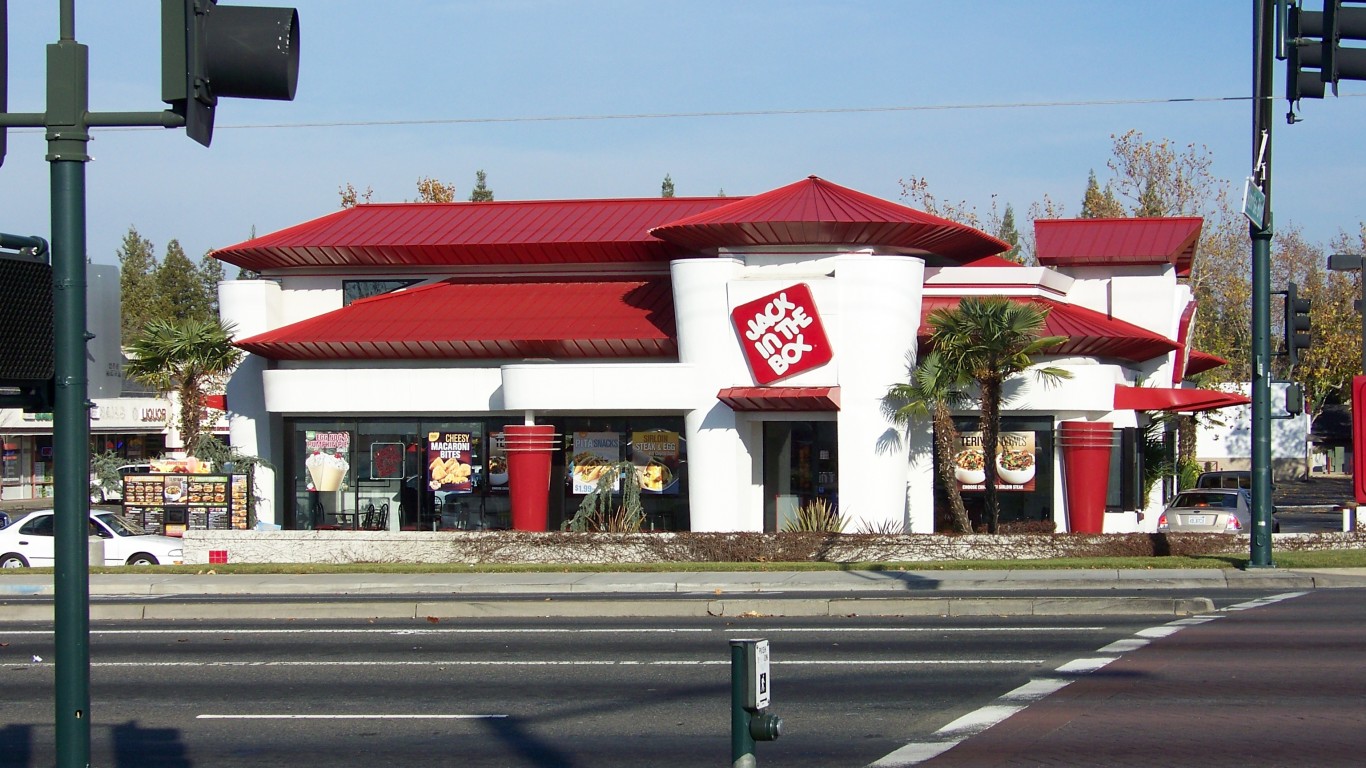
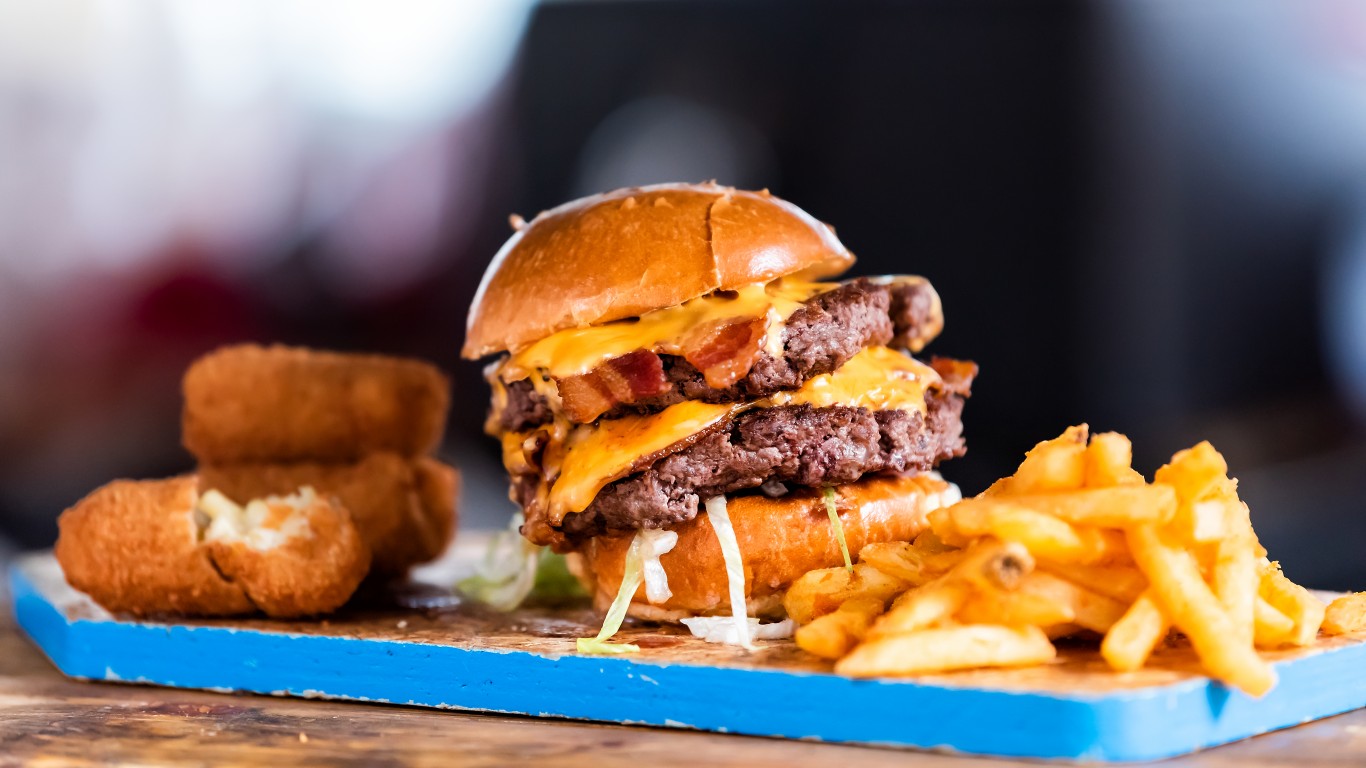 24/7 Wall St.
24/7 Wall St.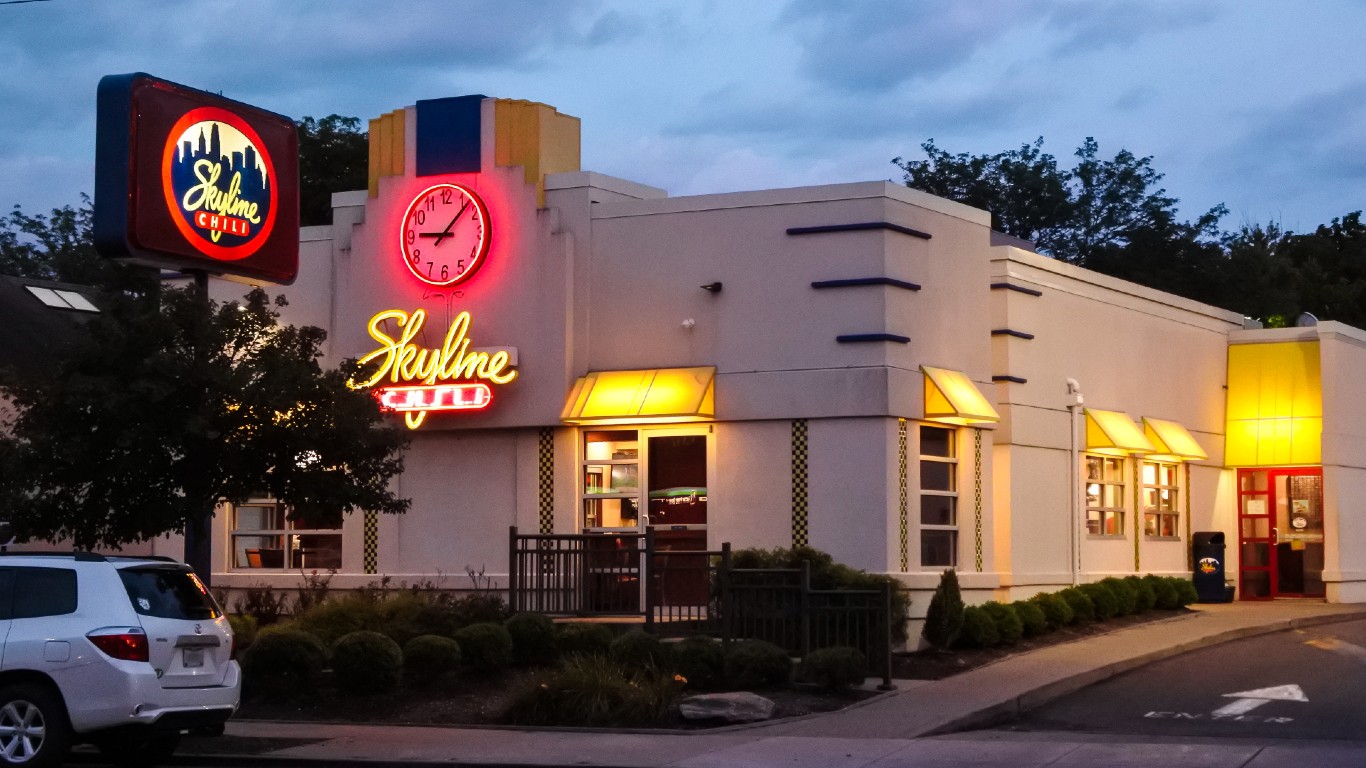
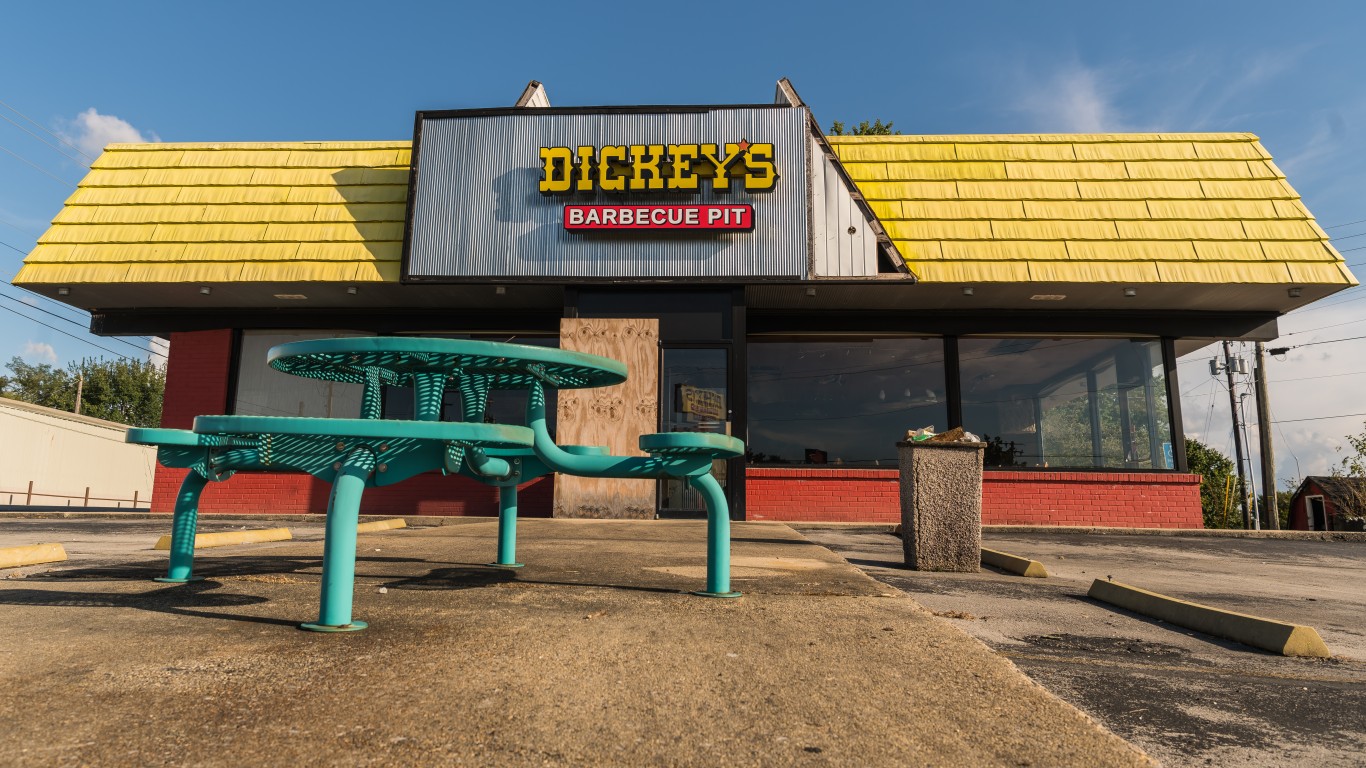
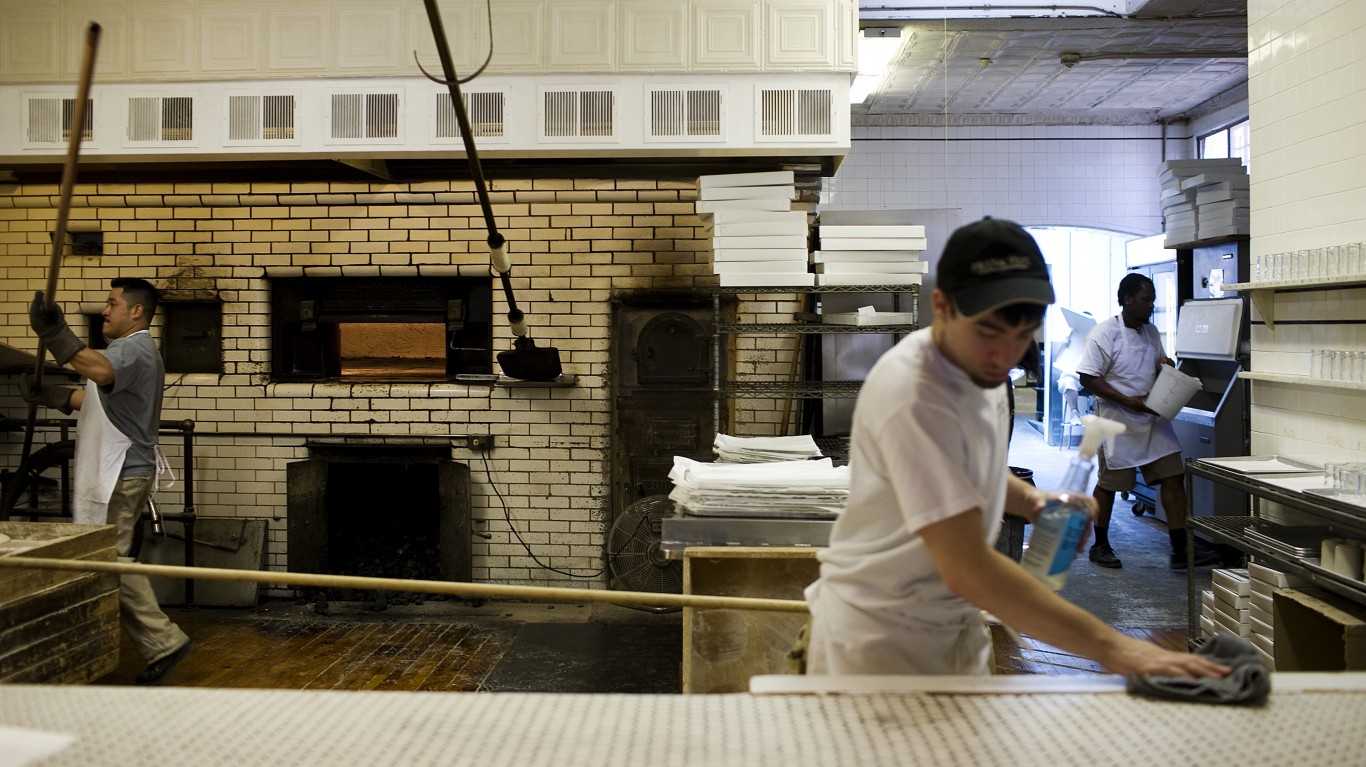 24/7 Wall St.
24/7 Wall St.